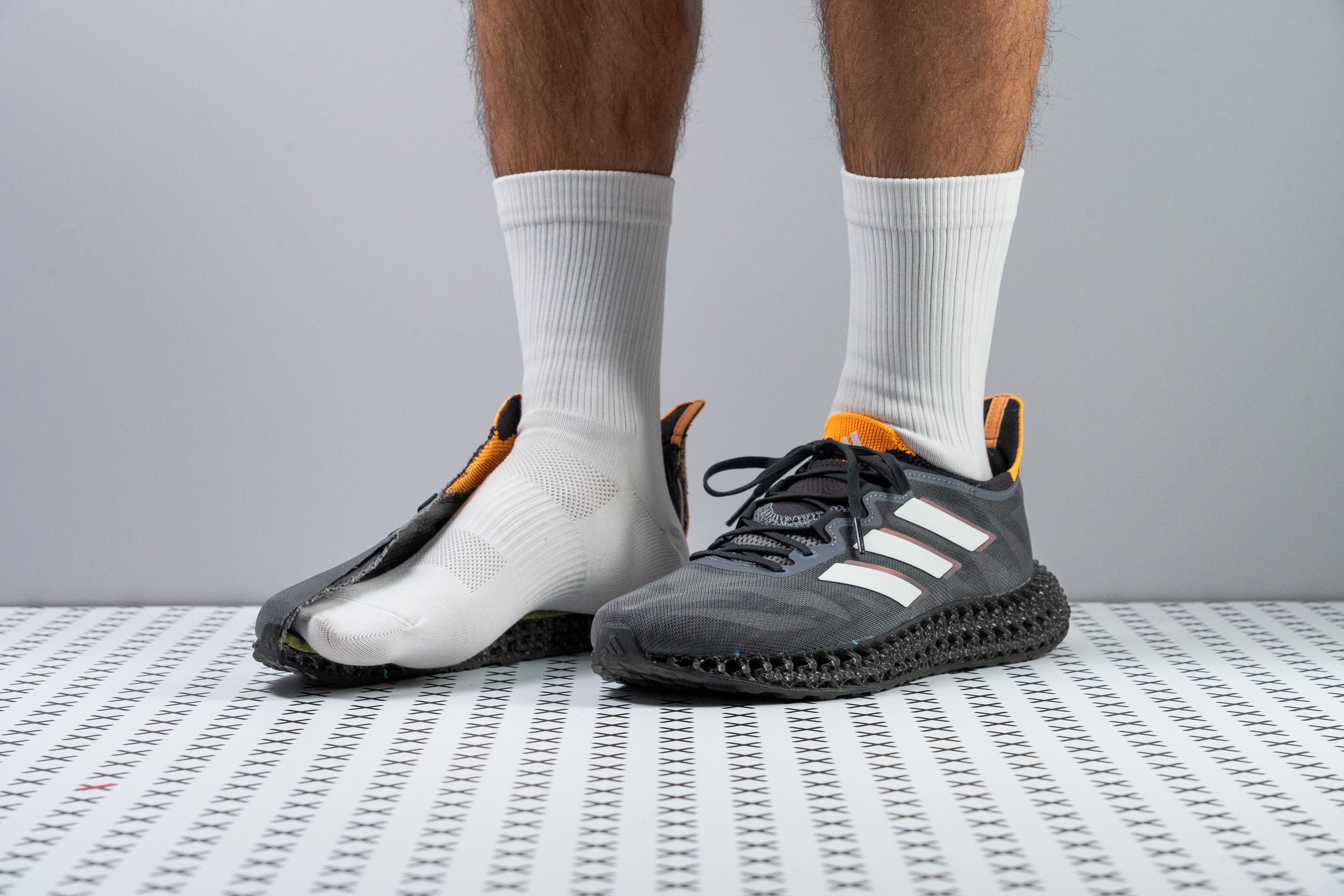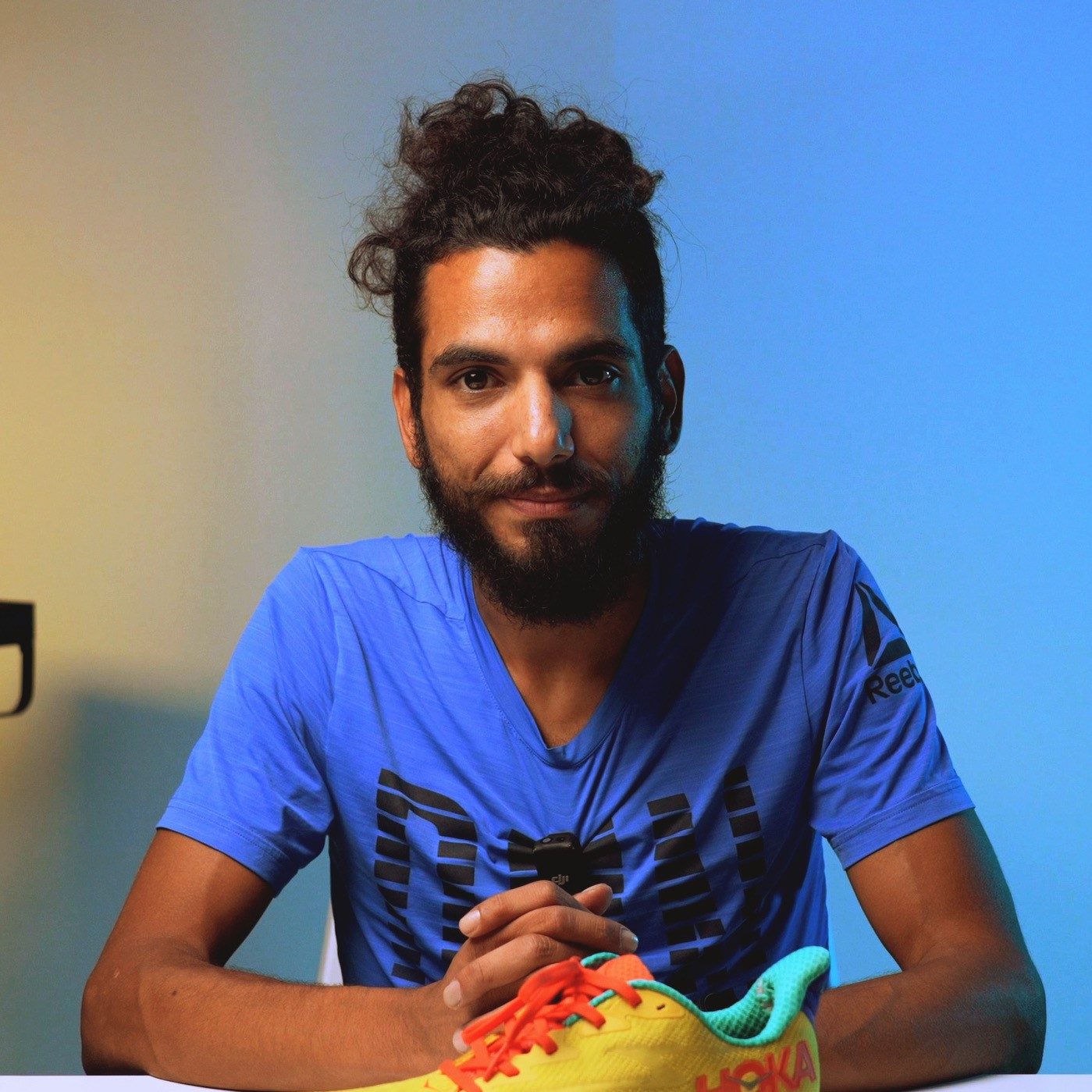Our verdict
- Top pick in best Adidas running shoes (2024)
Pros
- Extremely comfortable
- Excellent traction
- Great 4D midsole cushion
- Durable upper and outsole
- Flexible and forgiving on the foot
- Secure lockdown
- Works great as a walking shoe
- Warm and consistent in the cold
- Eye-catching design
- Lots of colorway options
Cons
- Quite heavy
- Not good for high speeds or long distances
- Below average breathability
- Relatively narrow toebox
Audience verdict
- Top 24% in running shoes for walking
- Top 29% in daily running shoes
Comparison
The most similar running shoes compared
+ + Add a shoe | |||||
|---|---|---|---|---|---|
| Audience score | 88 Great! | 85 Good! | 87 Great! | 89 Great! | |
| Price | $200 | $65 | $110 | $150 | |
| Pace | Daily running | Daily running | Daily running | Daily runningTempo | |
| Shock absorption | - | Moderate | - | - | |
| Energy return | - | Low | - | - | |
| Traction | - | Low | - | - | |
| Arch support | Neutral | Neutral | Neutral | Neutral | |
| Weight lab Weight brand | 12.3 oz / 348g 12.2 oz / 345g | 9.7 oz / 275g 10.7 oz / 303g | 9 oz / 254g 9.4 oz / 266g | 9.1 oz / 259g 7.5 oz / 214g | |
| Drop lab Drop brand | 9.9 mm 10.0 mm | 9.4 mm 10.0 mm | 6.0 mm 8.0 mm | 11.2 mm 11.0 mm | |
| Strike pattern | HeelMid/forefoot | HeelMid/forefoot | Mid/forefoot | Heel | |
| Size | True to size | True to size | Slightly large | Slightly small | |
| Midsole softness | Firm | Balanced | Balanced | Balanced | |
| Difference in midsole softness in cold | Small | Small | Small | Small | |
| Toebox durability | Good | Bad | Bad | Bad | |
| Heel padding durability | Good | Bad | Decent | Bad | |
| Outsole durability | Good | Decent | Good | Good | |
| Breathability | Warm | Moderate | Warm | Moderate | |
| Width / fit | Narrow | Wide | Medium | Medium | |
| Toebox width | Medium | Medium | Medium | Medium | |
| Stiffness | Moderate | Moderate | Stiff | Moderate | |
| Torsional rigidity | Flexible | Flexible | Flexible | Moderate | |
| Heel counter stiffness | Flexible | Moderate | Flexible | Flexible | |
| Heel lab Heel brand | 32.6 mm 34.0 mm | 31.2 mm 33.0 mm | 30.2 mm 27.0 mm | 33.8 mm 30.0 mm | |
| Forefoot lab Forefoot brand | 22.7 mm 24.0 mm | 21.8 mm 23.0 mm | 24.2 mm 19.0 mm | 22.6 mm 19.0 mm | |
| Widths available | Normal | NormalWide | Normal | NormalWide | |
| Orthotic friendly | ✓ | ✓ | ✓ | ✓ | |
| Season | All seasons | All seasons | All seasons | All seasons | |
| Removable insole | ✓ | ✓ | ✓ | ✓ | |
| Ranking | #123 Top 33% | #202 Bottom 47% | #169 Top 45% | #116 Top 31% | |
| Popularity | #345 Bottom 10% | #113 Top 30% | #311 Bottom 19% | #244 Bottom 36% |
Who should buy
We recommend the Adidas 4DFWD 3 as an excellent choice for:
- Neutral runners in the market for a well-cushioned and flexible daily trainer for low-intensity runs
- Runners in cooler climates looking for a shoe that will keep their feet warm and perform consistently all year round.
- Style-minded individuals looking for an eye-catching exercise shoe that's also good for strutting about town
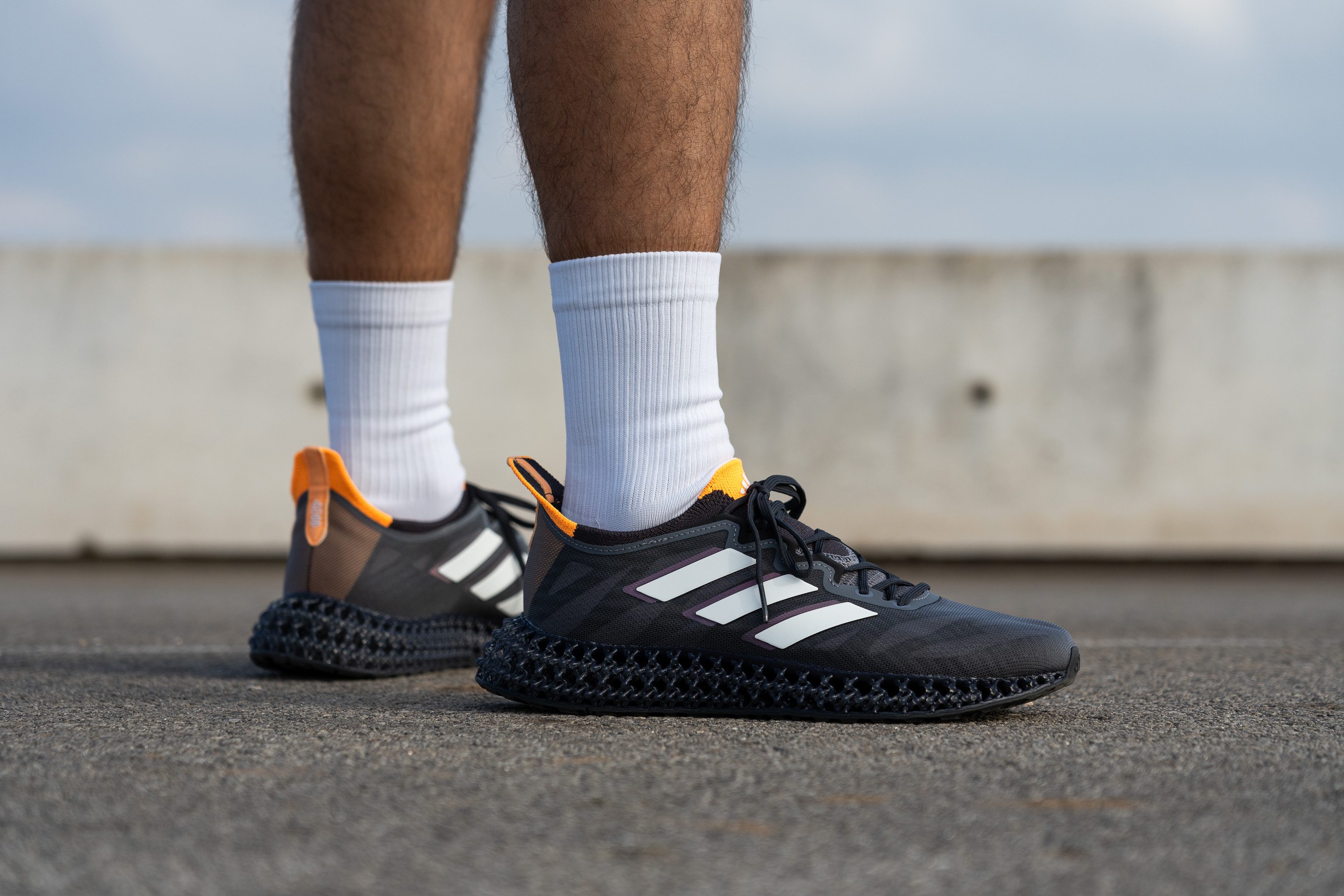
Who should NOT buy
With its lackluster performance in our breathability test, the 4DFWD 3 isn't very well suited for warm weather runs. The Allbirds Tree Dasher 2.0 is another casual daily trainer with a sock-like fit that's much better ventilated for those muggy summer runs.
At 12.3 oz (348g) the 4DFWD 3 isn't quite as light as its appearance would lead us to believe. The ASICS Dynablast 3 is a much lighter and more versatile option we recommend to those who are more serious about running.
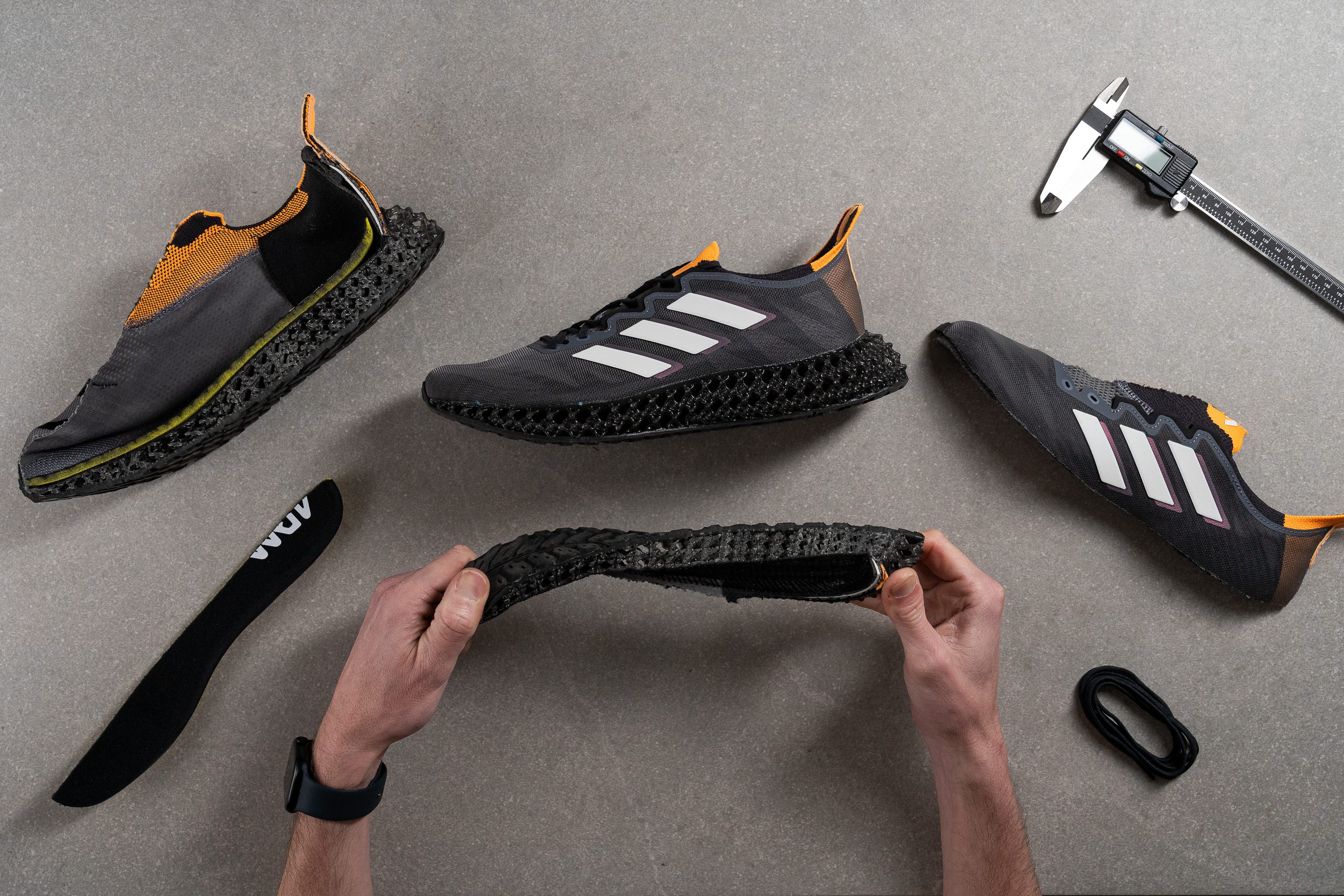
The 4DFWD's toebox may prove a little too snug for runners with broad feet. We recommend the similarly outlandish Adidas Swith FWD as a roomier alternative.
Overpronators won't find the stability they need with the 4DFWD. We suggest looking into shoes that promote a more neutral stride as a daily trainer to avoid injury like the Brooks Adrenaline GTS 23 or the Nike Structure 25 instead.
Cushioning
Heel stack
Using our caliper, we measured the 4DFWD 3's unusual stack to be 32.6 mm thick at the heel. This is just shy of our current lab average but still gives us plenty of material underfoot to effectively protect our feet from the impacts of our landings.
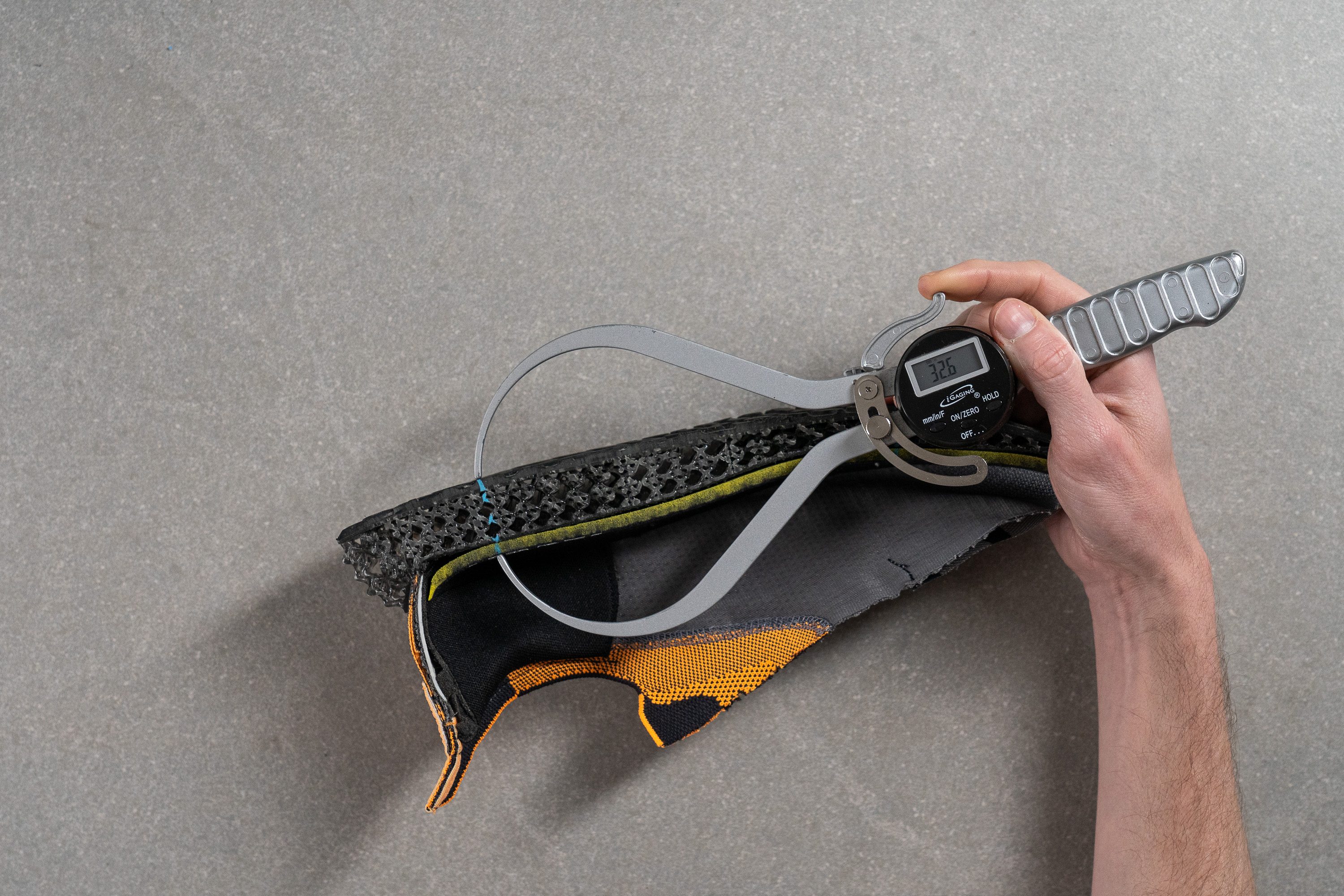
The heel also flares outward in a way that helps heel strikers avoid overstriding while running in this shoe and is another factor in how comfy the 4DFWD 3 is as a walking shoe.
| 4DFWD 3 | 32.6 mm |
| Average | 34.8 mm |
Forefoot stack
The forefoot stack is also just shy of our current lab average at 22.7 mm thick according to our caliper measurements. This ensures that we still enjoy well-protected landings and toe-offs while still allowing for some sense of the ground below.
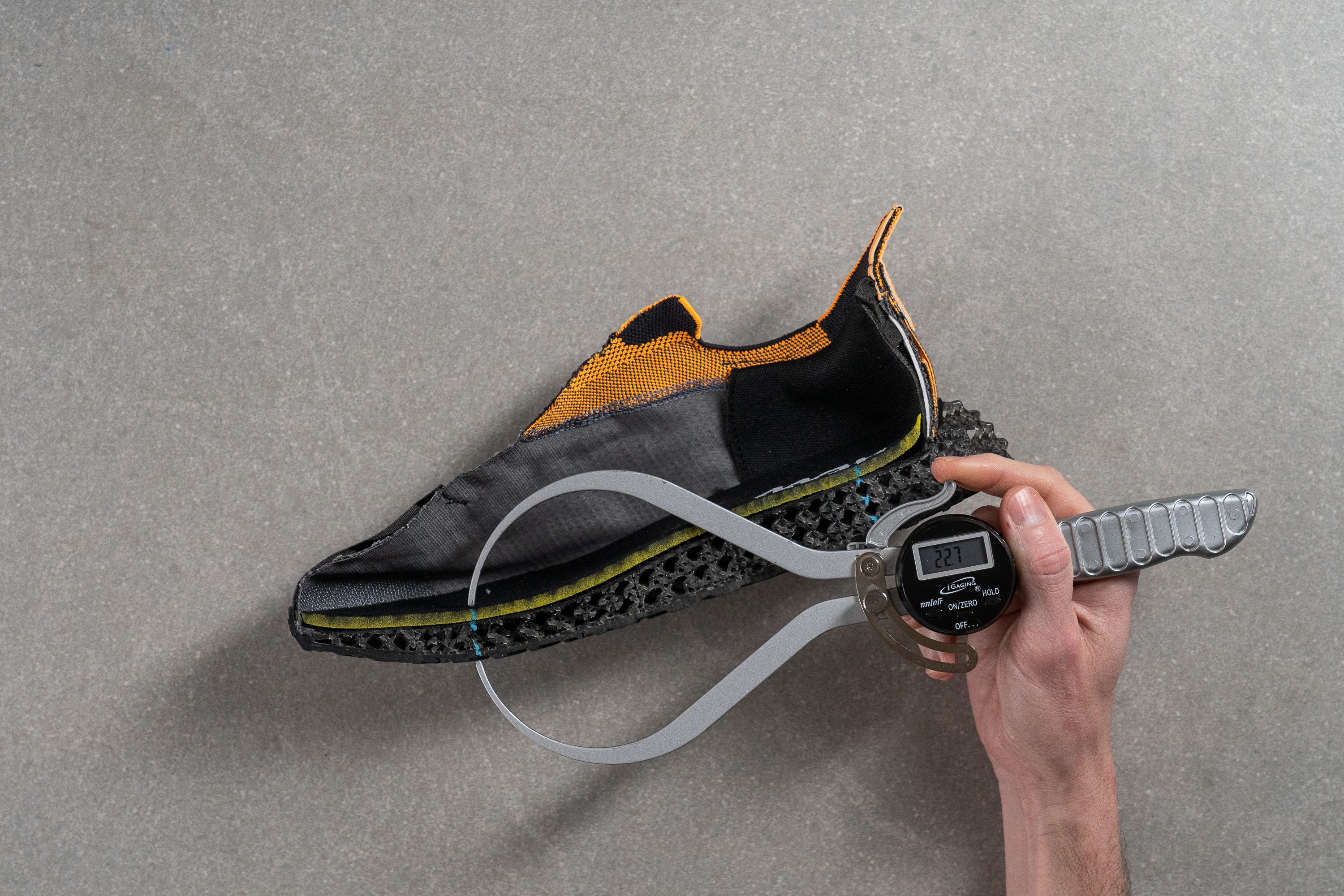
| 4DFWD 3 | 22.7 mm |
| Average | 26.2 mm |
Drop
The difference in our stack measurements leaves us with a drop height of 9.9 mm, making the 10 mm as stated by Adidas commendably accurate. This classifies the 4DFWD 3 as a high-drop shoe, with this offset, in particular, being quite beneficial for beginners as it provides a good mix of an elevated and protected heel with a more grounded and balanced forefoot.
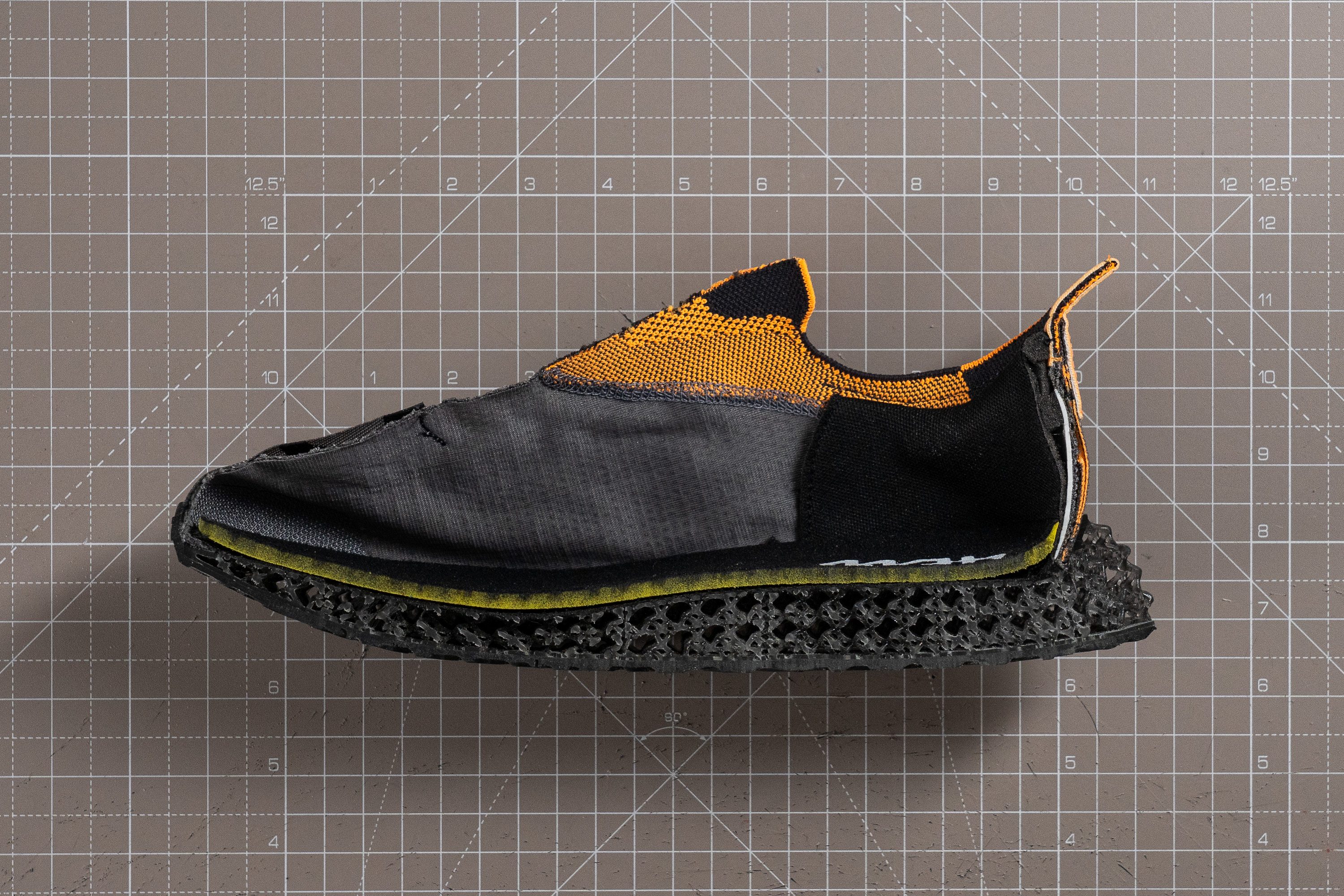
That said, high-drop shoes tend to be more beneficial for runners with a heel-striking stride. Midfoot/forefoot strikers who prefer a shoe with a lower heel drop should look into the Skechers Go Run Ride 11 as an alternative.
| 4DFWD 3 | 9.9 mm |
| Average | 8.6 mm |
Midsole softness
Pressing our durometer against the 4D midsole gives us a rather firm reading of 41.5 HA.
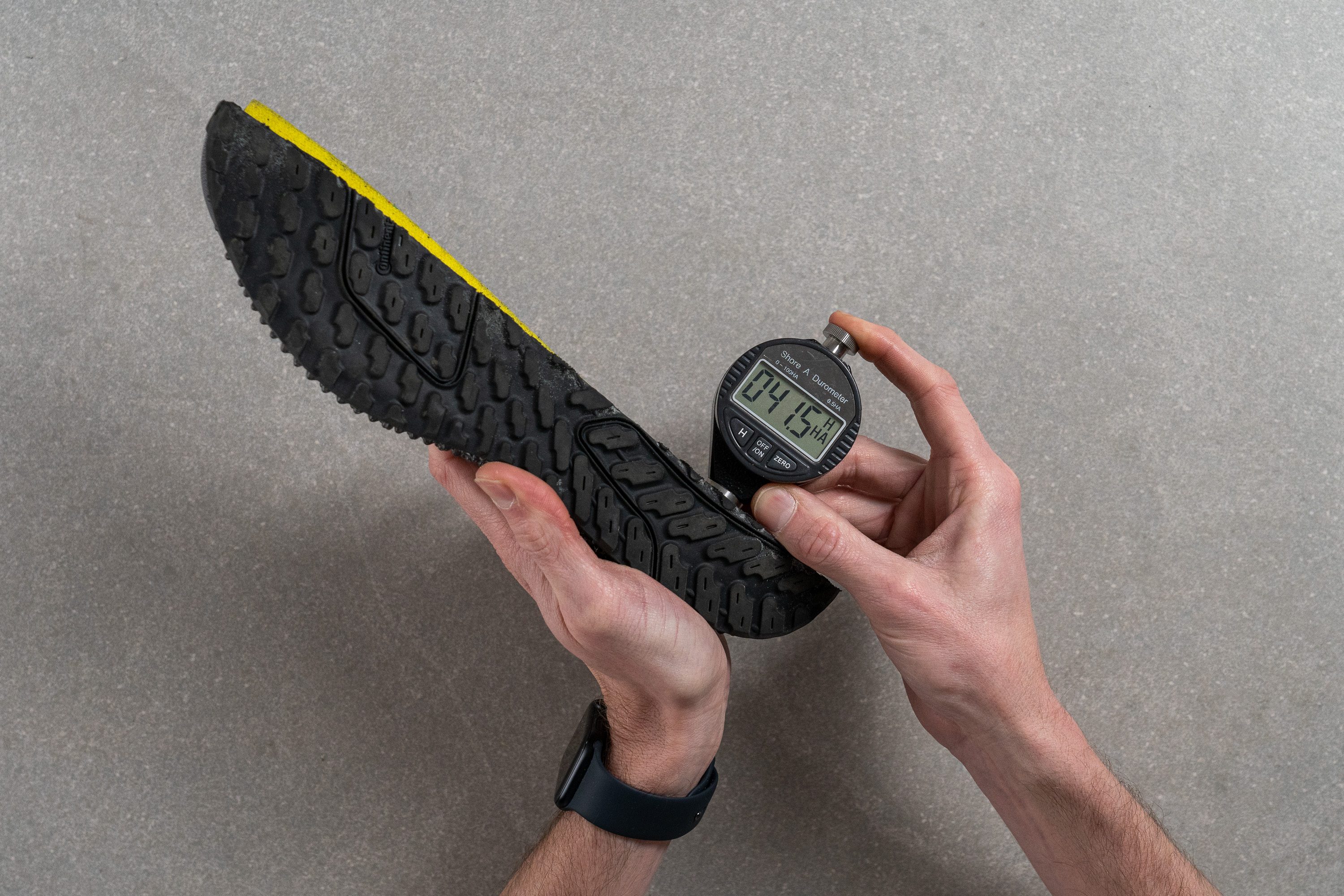
However, while most midsole rely on the softness of the foam that makes it up to provide cushioning, the 4DFWD 3 doesn't work that way. Rather, it's the gaps in the 3D-printed midsole that allow it to compress under our weight and dampen the impact of our landings. The shoe, therefore, feels much softer underfoot than our durometer would lead us to believe.
Furthermore, the hardness of the midsole material means that it tries to retain its shape upon compression and has a nice propulsive rebound as our weight shifts forward in the transition from heel to toe. In this way, the 4DFWD 3's midsole feels rather springy and lively, thereby bringing lots of comfort and fun to our daily runs. That said, we were never going to be breaking any PRs in this shoe that's certainly more suited for slow to moderate paces.
| 4DFWD 3 | 41.5 HA |
| Average | 20.4 HA |
Size and fit
Size
Adidas 4DFWD 3 fits true to size (15 votes).
Width / Fit
Using our caliper, we measured the 4DFWD 3's toebox to be 97.1 mm wide at its widest point which is just shy of our current lab average. This should accommodate most runners comfortably, especially for lower-intensity runs. That said, individuals with broad feet who prefer a slightly roomier toebox should consider the Adidas Switch FWD as a similarly funky alternative.
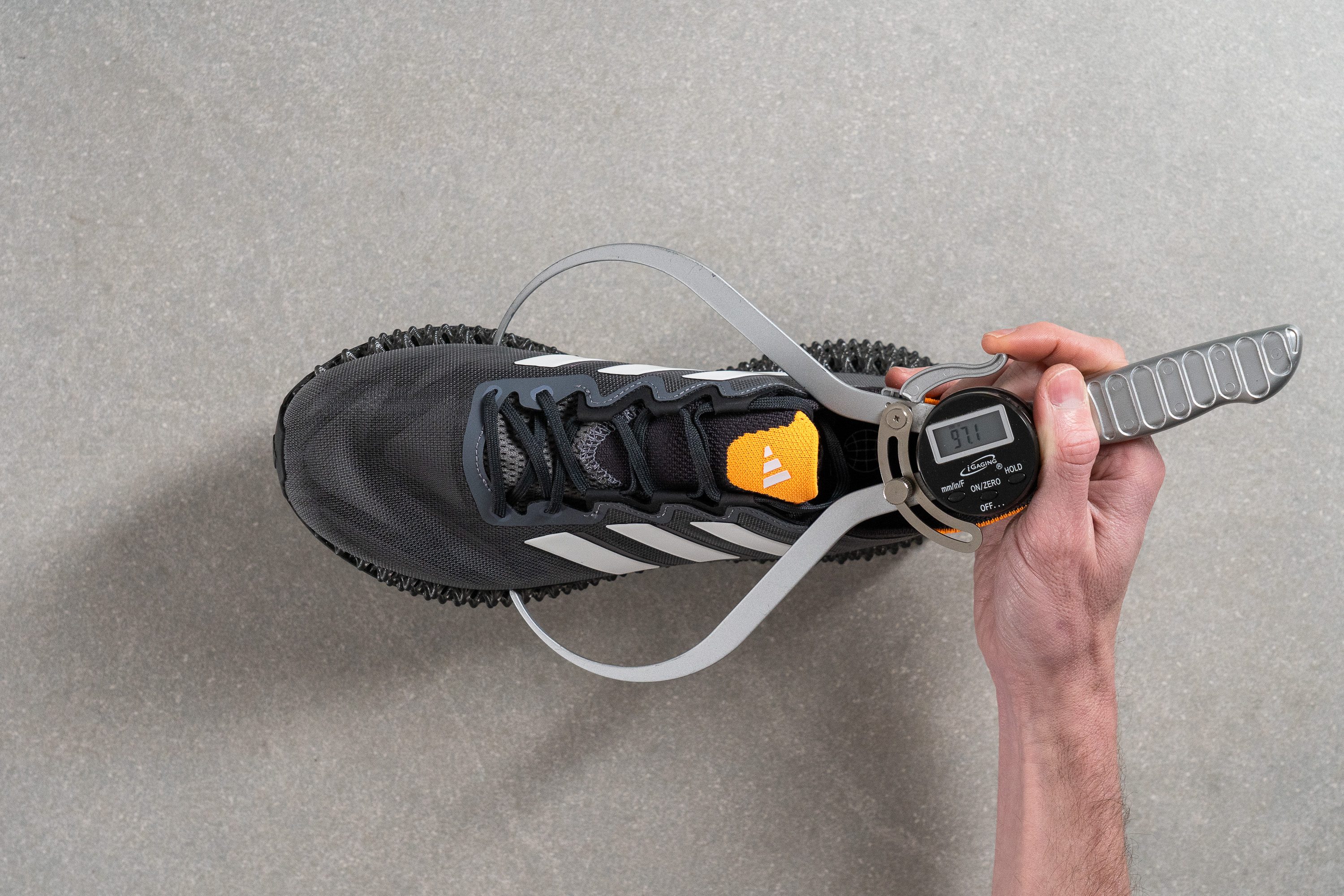
This test follows an older methodology, which is why you don't see recently tested shoes in the chart. Results from different methodologies can not be compared.
| 4DFWD 3 | 97.1 mm |
| Average | 98.5 mm |
Toebox width
Moving up to the area around the big toe, the 4DFWD 3's toebox is quite a bit narrower than average at only 76.6 mm wide. This doesn't give us much room for our toes to splay as we run, with broad-footed runners especially liable to developing hotspots or blisters in this shoe over time. For those runners, we recommend the Adidas Pureboost 23 as an alternative with more room in the forefoot.
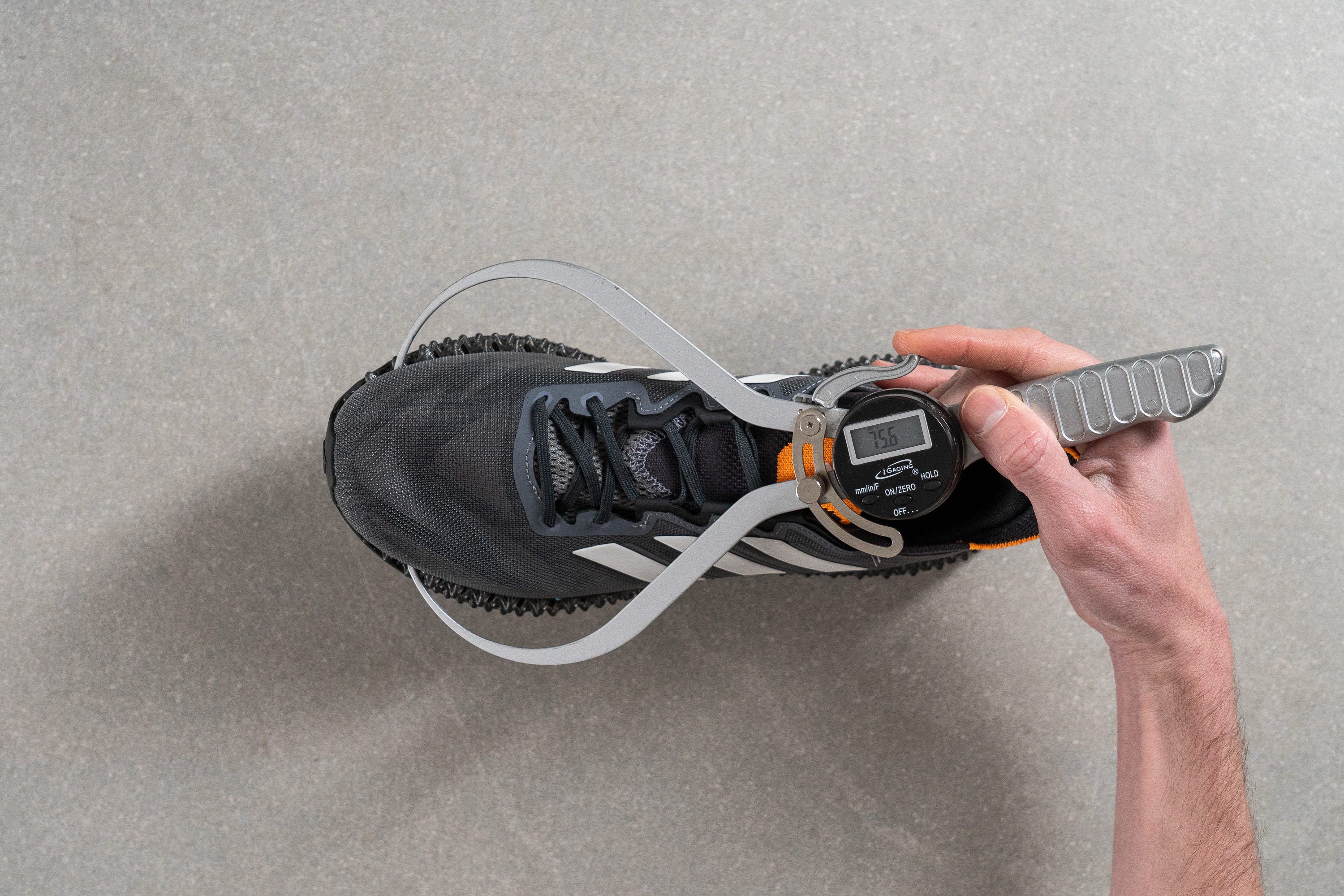
This test follows an older methodology, which is why you don't see recently tested shoes in the chart. Results from different methodologies can not be compared.
| 4DFWD 3 | 75.6 mm |
| Average | 78.4 mm |
Flexibility / Stiffness
We secured the 4DFWD 3 to our workbench and, using a force gauge, found that only 15.3N of force was needed to bend it to 90 degrees.
This is a fantastically pliable result that makes the 4DFWD 3 much more flexible than the average road shoe. As such, the shoe has no issue conforming with the flexion of our foot which makes it feel incredibly comfortable and forgiving on our foot during testing.
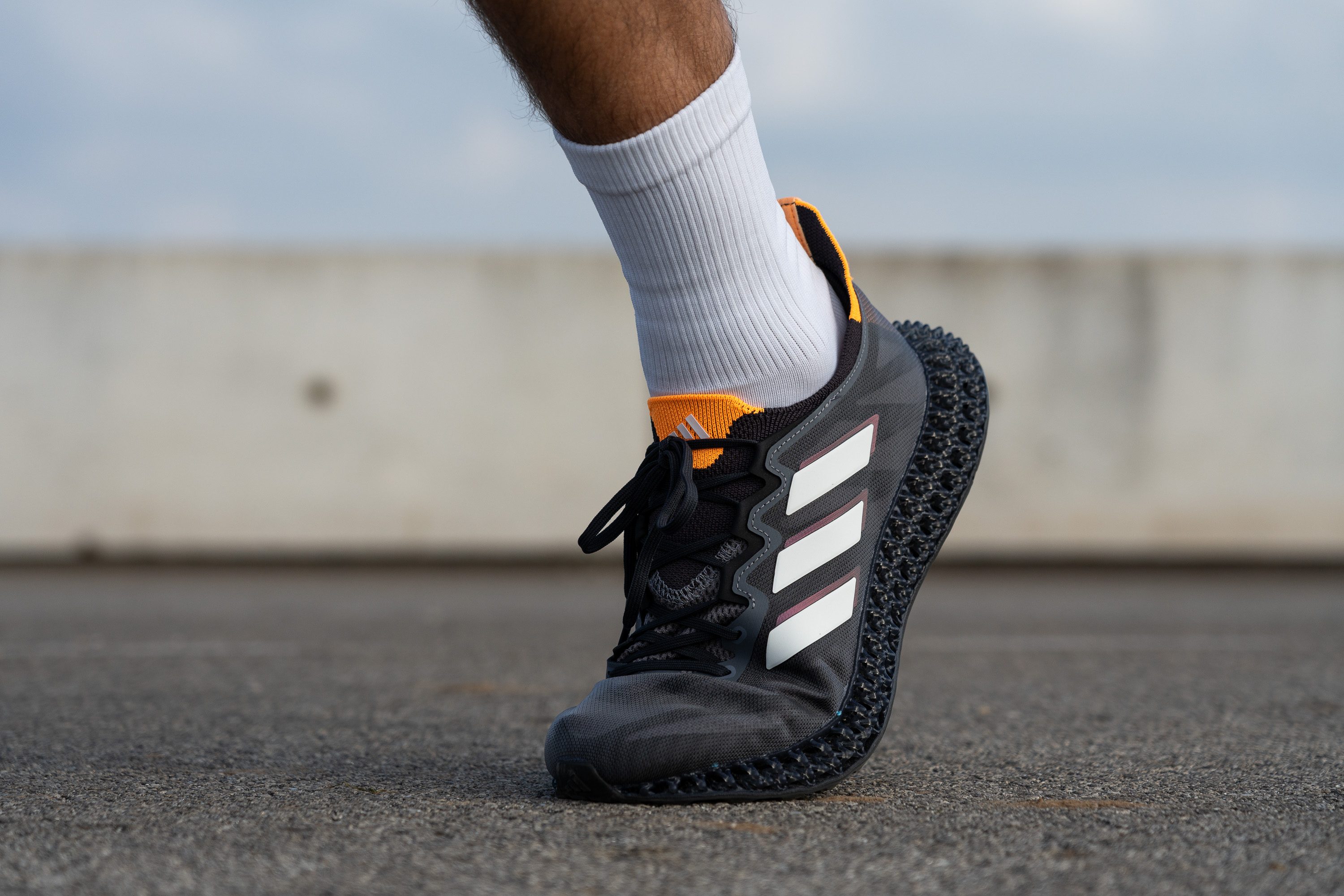
This test follows an older methodology, which is why you don't see recently tested shoes in the chart. Results from different methodologies can not be compared.
| 4DFWD 3 | 15.3N |
| Average | 28.1N |
Stiffness in cold (%)
After leaving the shoe in the freezer for twenty minutes, we also repeated the flex test and found that the shoe only became 15% stiffer when exposed to the cold. This means that the flexibility of the 4DFWD 3 isn't as affected by the cold as the average running shoe and will still feel incredibly supple no matter how frosty it gets out there. The results of both our freezer tests as well as the relatively insulated nature of the shoe's upper mesh make the 4DFWD 3 a great training partner for those frigid winter sessions.
| 4DFWD 3 | 15% |
| Average | 33% |
Weight
We make that point in the previous section because the 4DFWD 3 is undeniably heavy for a running shoe. Tipping our scale at 12.3 oz (348g), it's quite the chunky monkey and feels like it underfoot despite how airy and lightweight it looks.
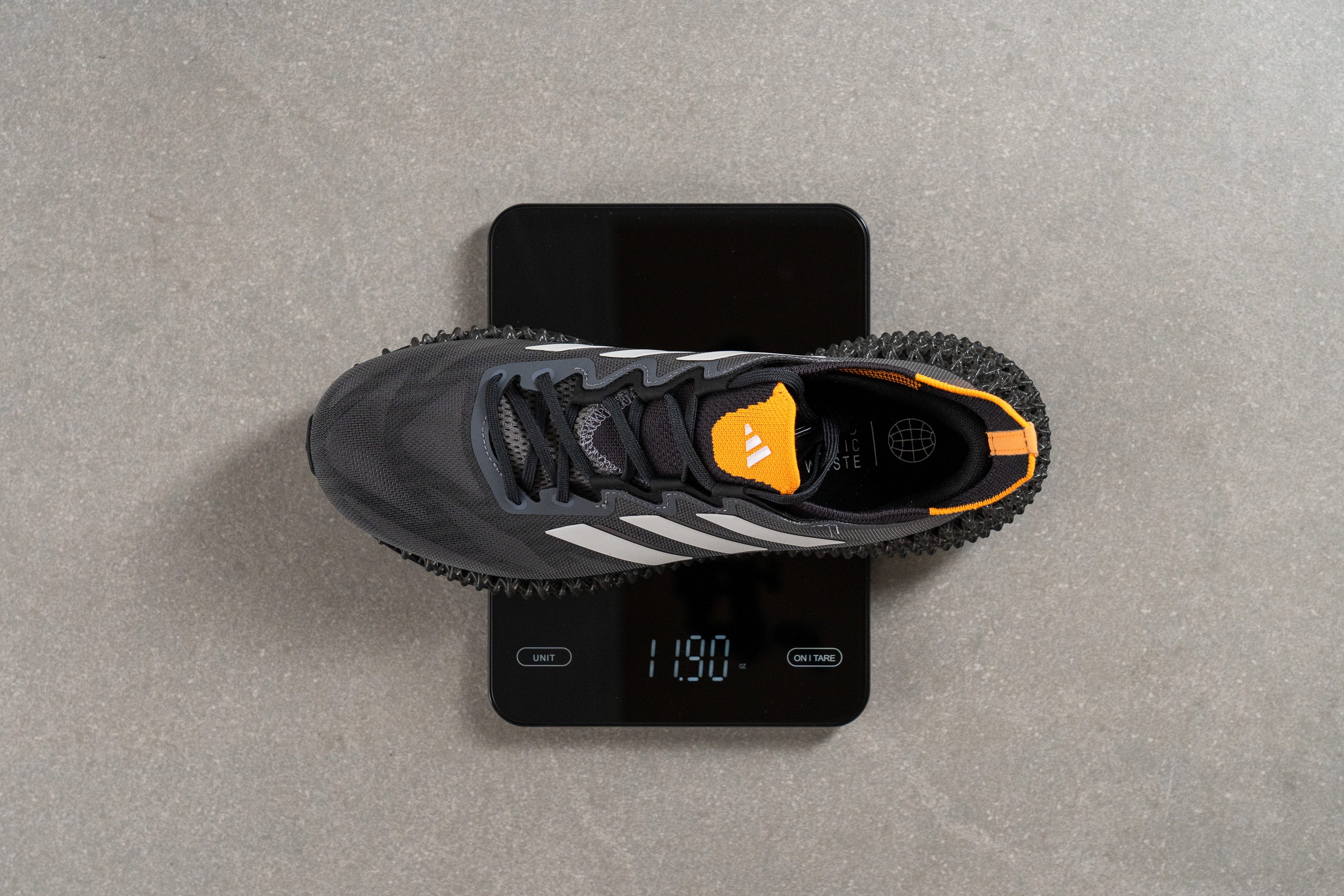
This weight is definitely prohibitive when it comes to pushing the pace for speedwork and feels quite cumbersome over long distances. Instead, the 4DFWD 3's happy place is whenever we take it out for easier runs at slower paces for short to moderate distances. It also makes a lovely, not to mention eye-catching, walker.
| 4DFWD 3 | 12.3 oz (348g) |
| Average | 9.3 oz (264g) |
Breathability
We pumped the 4DFWD 3 full of smoke to see how breathable it is and, as the footage demonstrates, it doesn't look too good. After quite some time with nothing happening, the smoke eventually starts sputtering through the different parts of the shoe at varying rates. This lackluster performance earns the 4DFWD 3 a breathability score of 2 out of 5. As such, the shoe will feel quite toasty during warmer days but should be ventilated enough to avoid developing a smell over time.
However, inspecting a cross-section of the upper over a backlight would lead us to believe that the 4DFWD 3 has superior airflow considering how easily the light shines through its many perforations.
However, looking at the upper itself, we see that not only is it well padded, but there's a light lining material that backs the porous mesh. This doesn't do much to block light but is clearly more effective at blocking smoke and hindering airflow.
Looking at the mesh under our microscope, it's clear that if it wasn't for the lining material underneath, heat would have plenty of avenues to vent out of the shoe between the interwoven fibers.
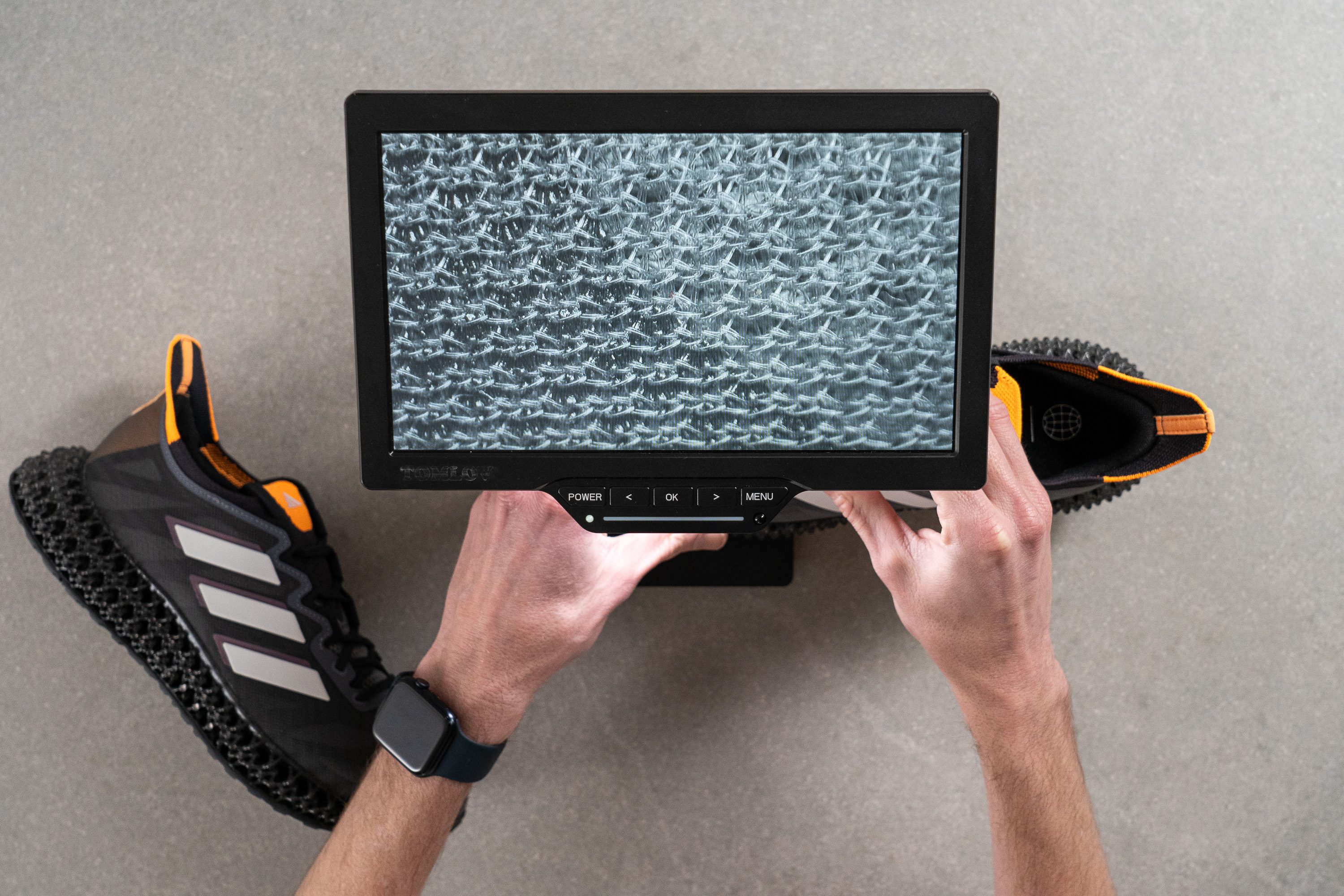
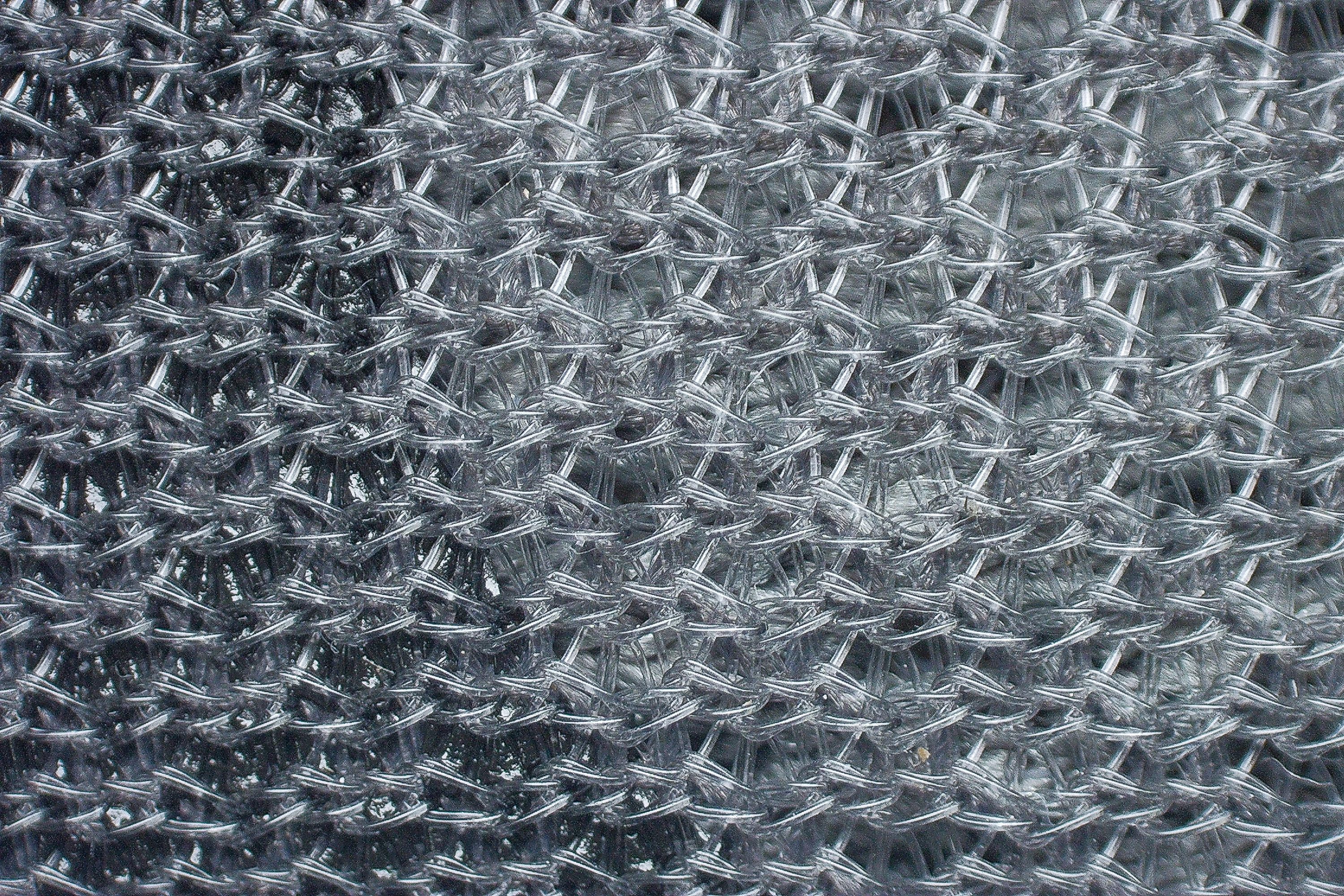
| 4DFWD 3 | 2 |
| Average | 3.7 |
Stability
Lateral stability test
Being geared more toward comfort than support, the 4DFWD 3 does very little to mitigate the pronation of our foot as we run in the shoe. As such, the shoe's ride isn't especially stable. This makes the 4DFWD 3 a less-than-ideal choice for overpronators as it leaves them vulnerable to injury over time. For those runners, we recommend a shoe that will promote a more neutral stride as their daily trainer like the Nike Structure 25.
Torsional rigidity
We found it quite easy to bend and twist the 4DFWD 3 in our hands, leading us to give it a torsional rigidity score of 2 out of 5 on our subjective scale. This translates to a comfy ride as the shoe doesn't resist the natural movements of our foot. On the other hand, it leaves us with a landing platform that isn't very rigid or stable which can lead to some imbalance in our stride.
| 4DFWD 3 | 2 |
| Average | 3.5 |
Heel counter stiffness
The heel counter is also relatively pliable, earning another score of 2 out of 5 in our manual assessment. Having such a loose structure at the rearfoot is another comfortable feature that we enjoy out of our daily trainers as it allows our heels a fair amount of lateral mobility while still keeping us securely locked in the shoe.
| 4DFWD 3 | 2 |
| Average | 2.9 |
Midsole width - forefoot
At 112.1 mm wide according to our caliper, the 4DFWD 3's midsole is just shy of our current lab average at the forefoot.
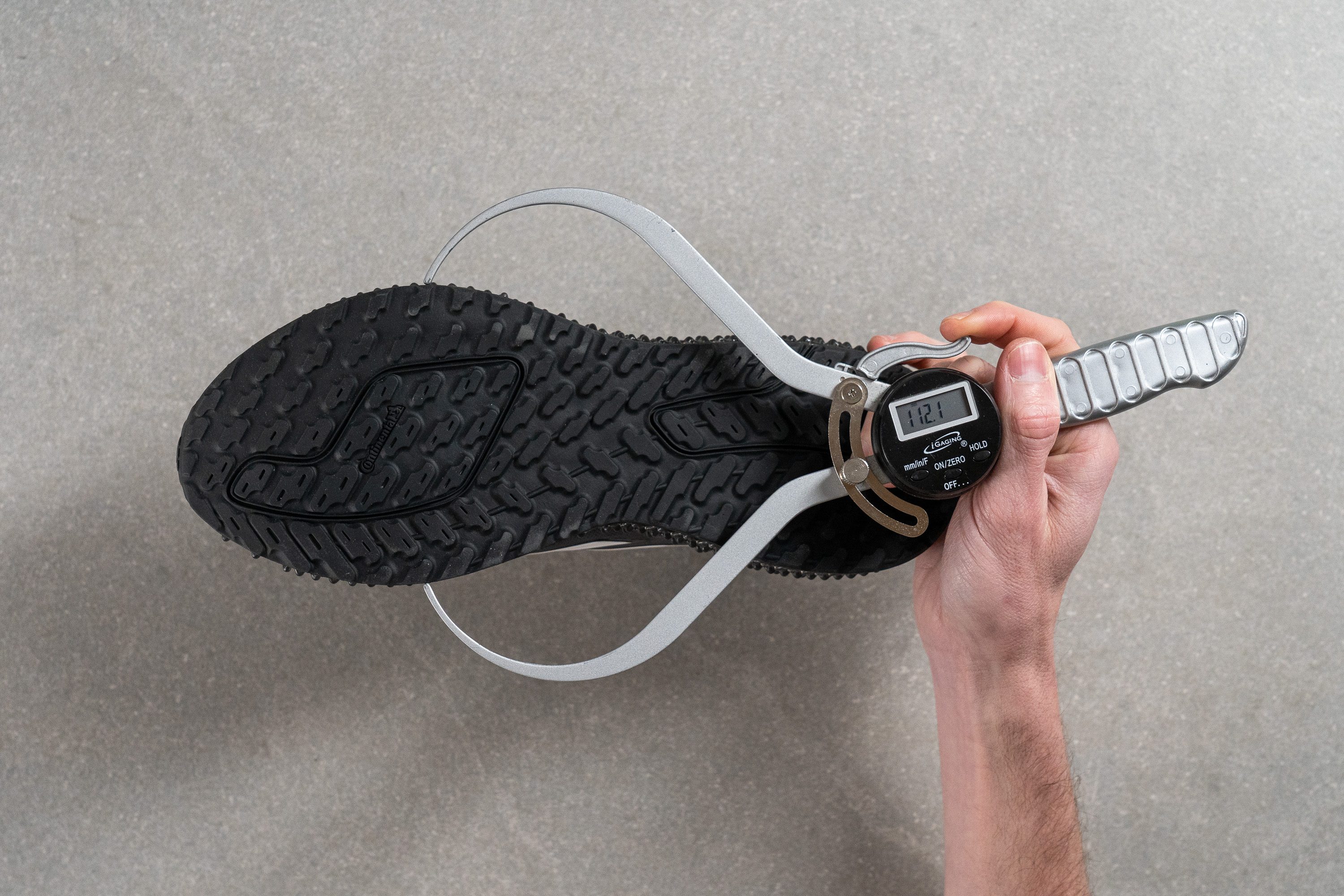
This is still broad enough that we felt like we had enough of a platform for balanced landings and toe-offs while out on our test runs. Moreover, by not being too wide at the forefoot, the shoe avoids feeling too blocky whenever we were cornering or taking sharp turns in the 4DFWD 3.
| 4DFWD 3 | 112.1 mm |
| Average | 114.4 mm |
Midsole width - heel
Back at the heel, we measured the midsole to be 92.3 mm wide which is slightly wider than our current lab average. This is beneficial for heel-striking runners as it gives them a robust landing surface that should keep them steady.
| 4DFWD 3 | 92.3 mm |
| Average | 90.6 mm |
Durability
Toebox durability
To test the durability of the 4DFWD 3, we faced it off against our Dremel in a battery of durability tests. Starting with the toebox, we got the tool spinning at 5K RPM and set it against the some with 3.2N of force.
After four seconds, we found that the toebox had stood up to the test quite well. While the mesh had taken some substantial damage, the lining wasn't affected and we weren't able to penetrate all the way through; leaving the overall integrity of the toebox relatively intact. This earns the 4DFWD 3 a very respectable toebox durability score of 4 out of 5 which is much better than expected for a daily trainer with a mesh upper.
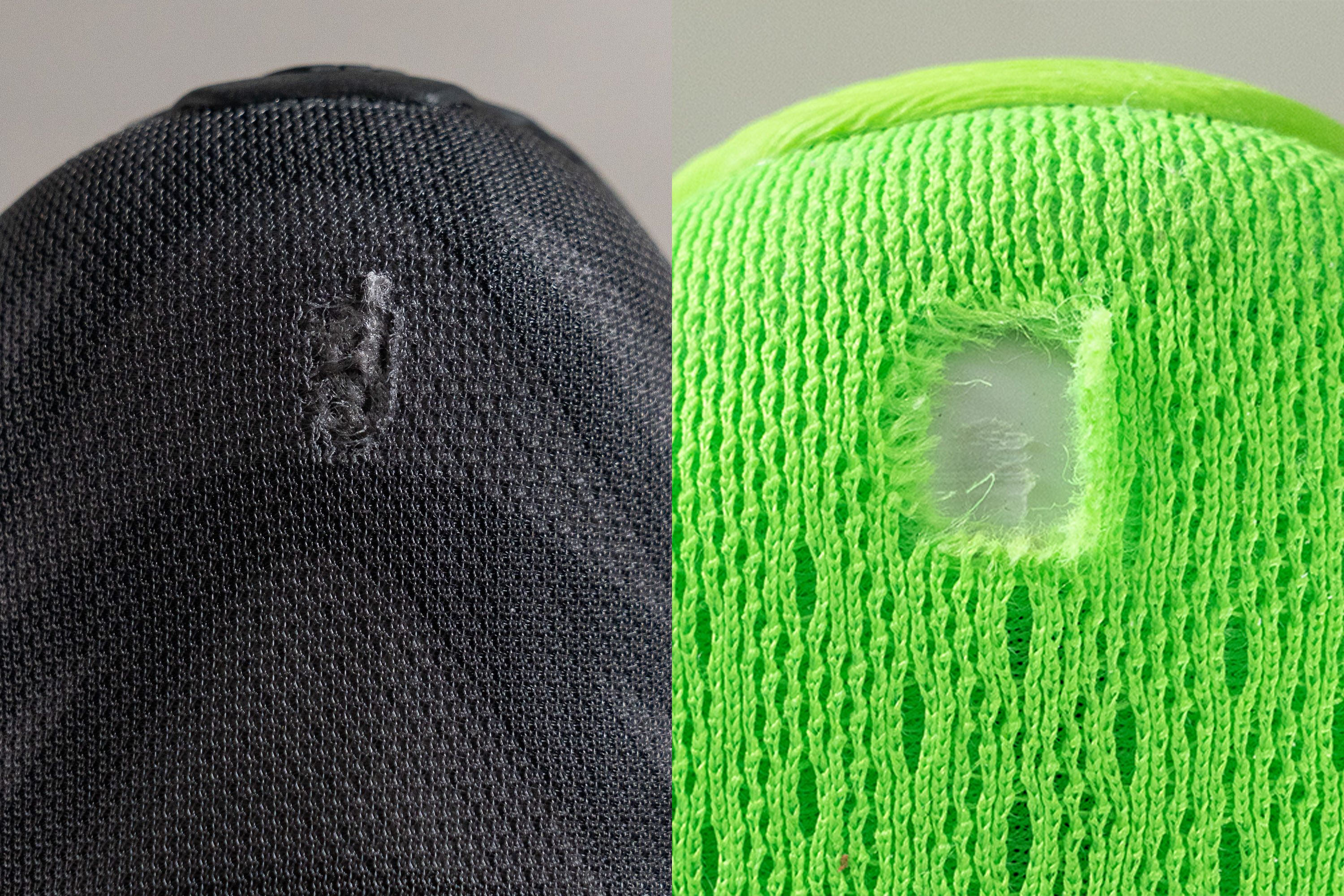
Compare that to how our Dremel absolutely obliterated the ASICS Gel Pulse 14 in the wake of this test.
| 4DFWD 3 | 4 |
| Average | 2.6 |
Heel padding durability
Next, we turned our attention to the 4DFWD 3's heel collar which proved to be just as hardy as its toebox.
It also escaped the four-second test with only minor damage to the lining material while the padding within was left unscathed. This leads us to give the 4DFWD 3 a heel padding durability score which means that the shoe is essentially impervious to the friction of heel rubs.
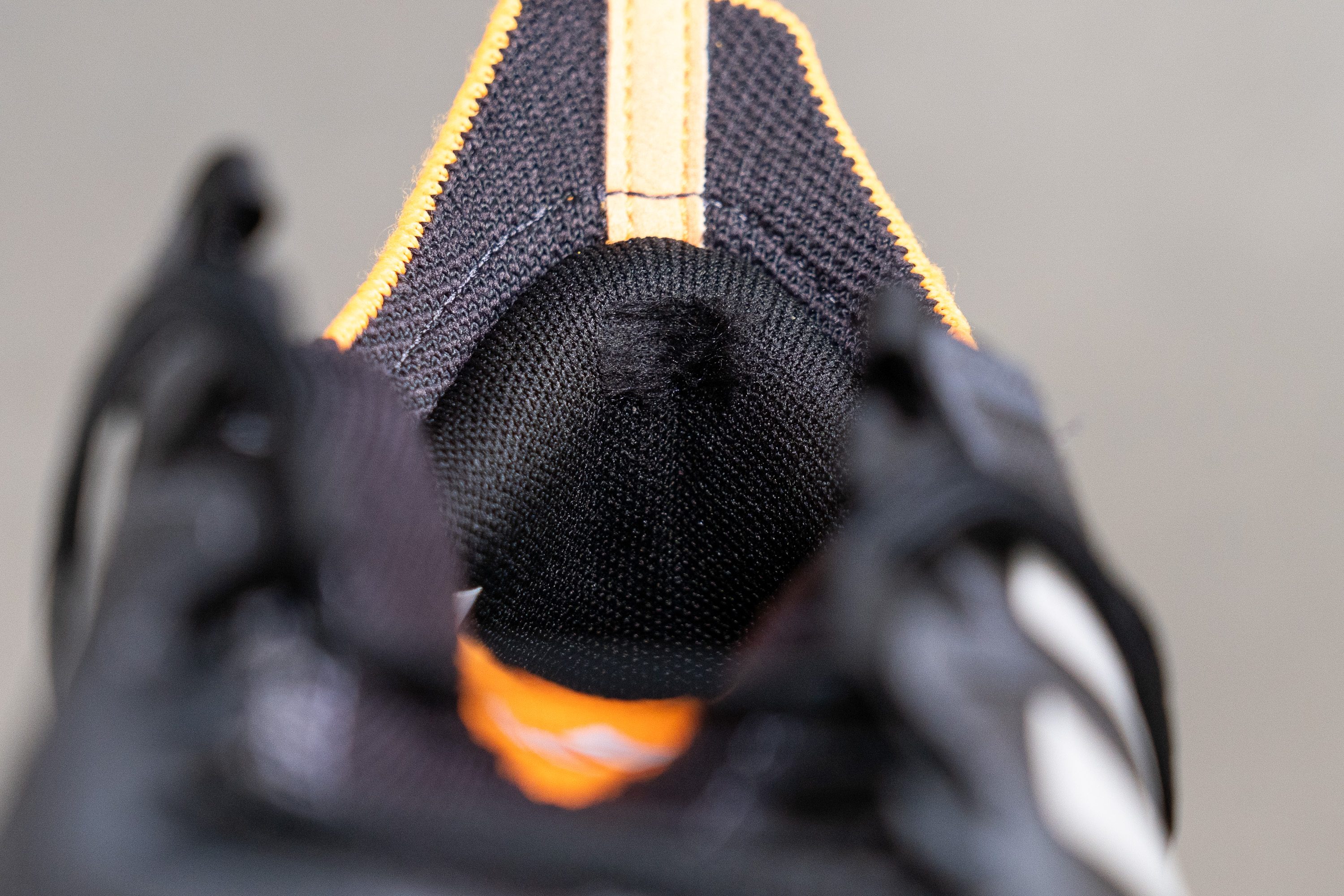
| 4DFWD 3 | 4 |
| Average | 3.4 |
Outsole hardness
Pressing our durometer against the 4DFWD 3's Continental rubber outsole yields a reading about as hard as average at 81.5 HC. This gives us no cause for concern regarding the durability of the outsole as the tire company is renowned for producing compounds that are extremely wear-resistant as well as grippy.
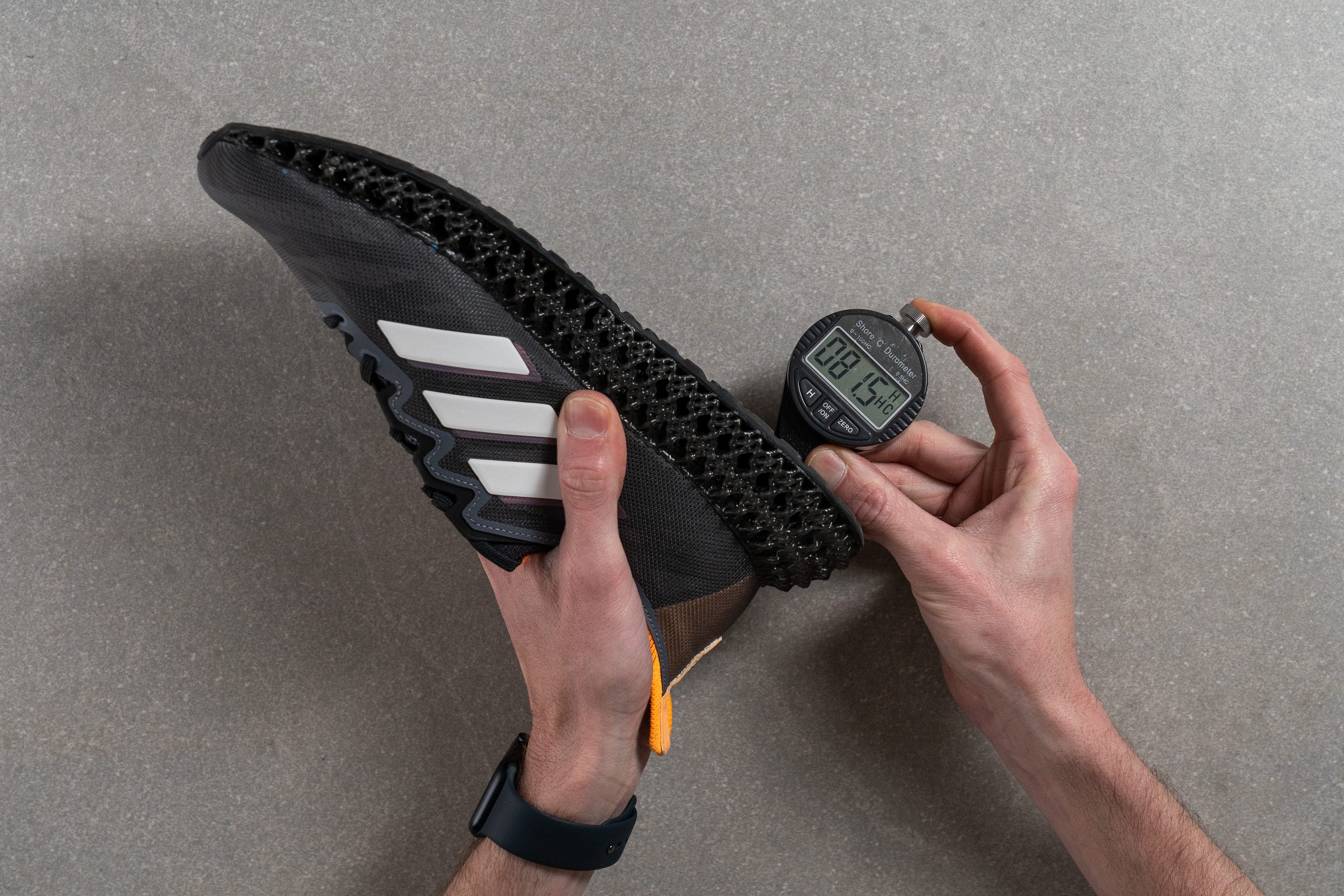
| 4DFWD 3 | 81.5 HC |
| Average | 79.2 HC |
Outsole durability
To test the outsole, we set our Dremel to 10K RPM and set it against the 4DFWD 3 for twenty-two seconds of relentless abrasion.
Once done, we used a tire tread gauge and found that we had only worn away 0.4 mm of rubber from the 4DFWD 3's outsole. This is a much better performance than average and thus confirms the faith we had in its Continental rubber. We therefore expect the outsole to last well beyond 500 miles of normal use before noticing any significant wear and tear.
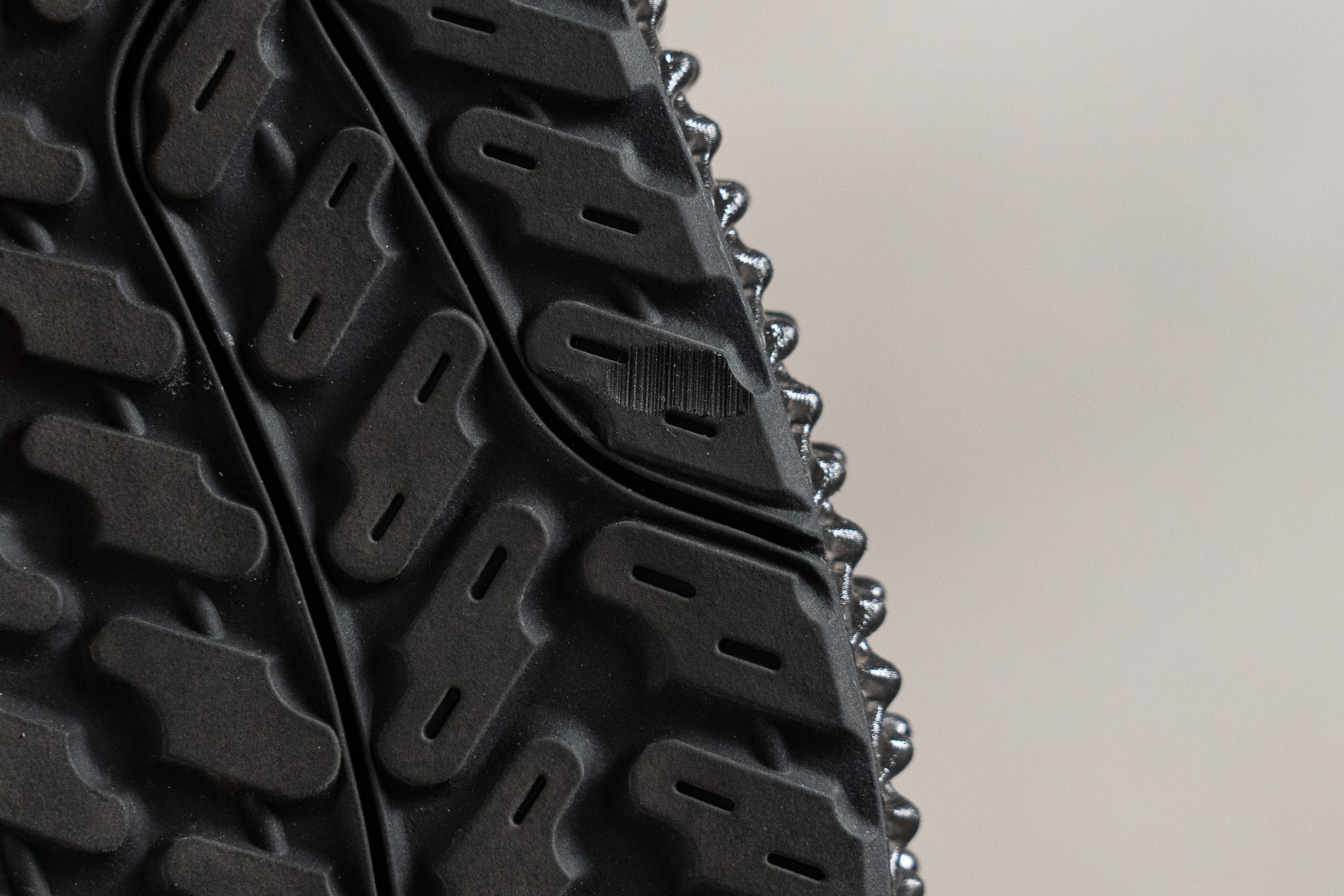
| 4DFWD 3 | 0.4 mm |
| Average | 1.1 mm |
Outsole thickness
The 4DFWD 3's outsole is within range of our current lab average at 3.4 mm thick according to our caliper. This gives us plenty of material to wear through, especially considering the rubber's performance in our previous test. We contend that Adidas could have even skimped on a bit of material to shave some weight off the shoe. On the other hand, with the 3D-printed midsole not being a solid slab, it's good to have a girthy base to hold it all together. Swings and roundabouts.
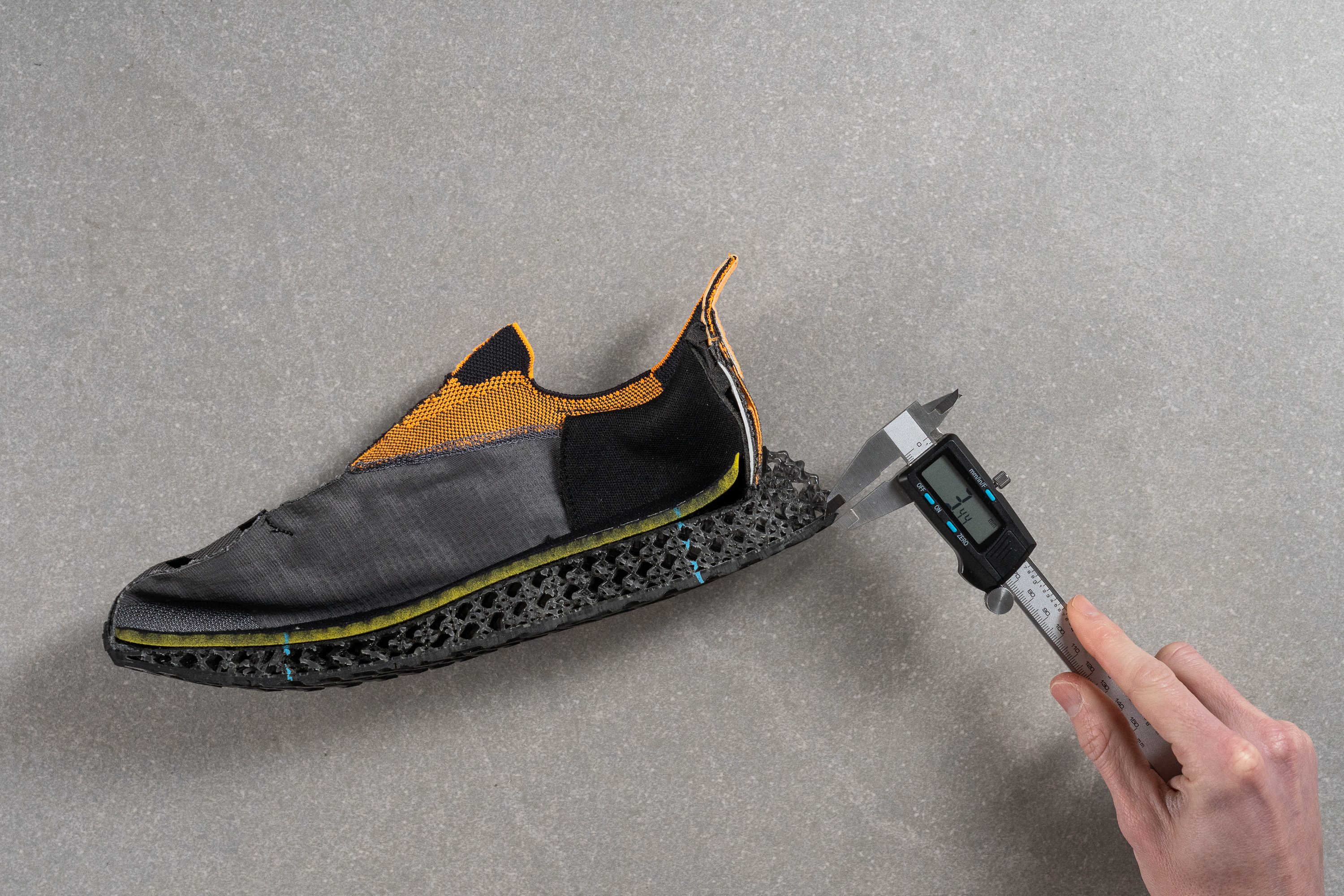
| 4DFWD 3 | 3.4 mm |
| Average | 3.2 mm |
Misc
Insole thickness
We measured the 4DFWD 3's insole to be 4.8 mm thick which is within spitting range of our current lab average. This gives us a padded enough footbed that softly welcomes our foot before the midsole cushioning kicks in.
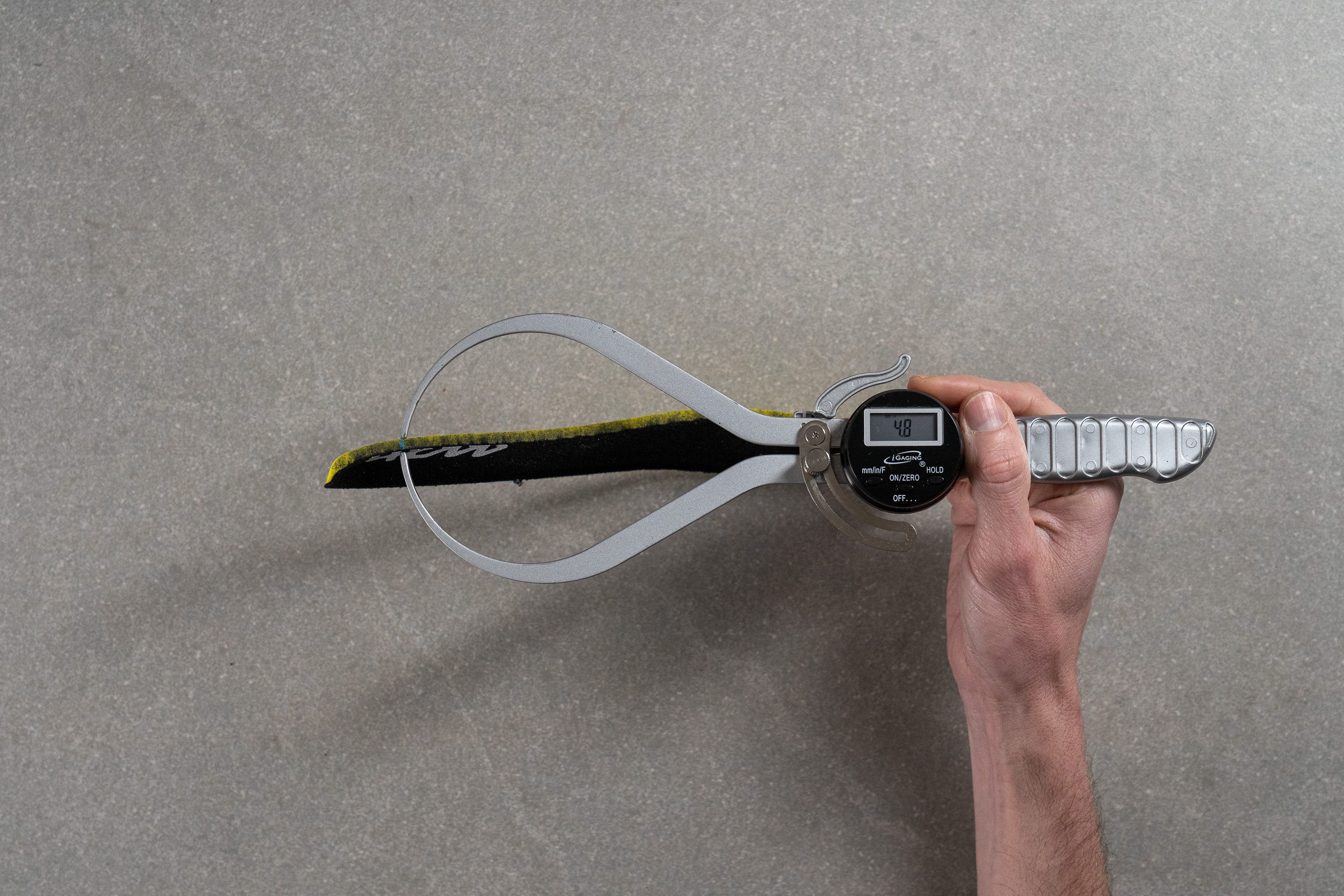
| 4DFWD 3 | 4.8 mm |
| Average | 4.5 mm |
Removable insole
The 4DFWD 3's insole isn't glued in so replacing it in favor of an aftermarket one or a custom orthotic is possible if necessary.
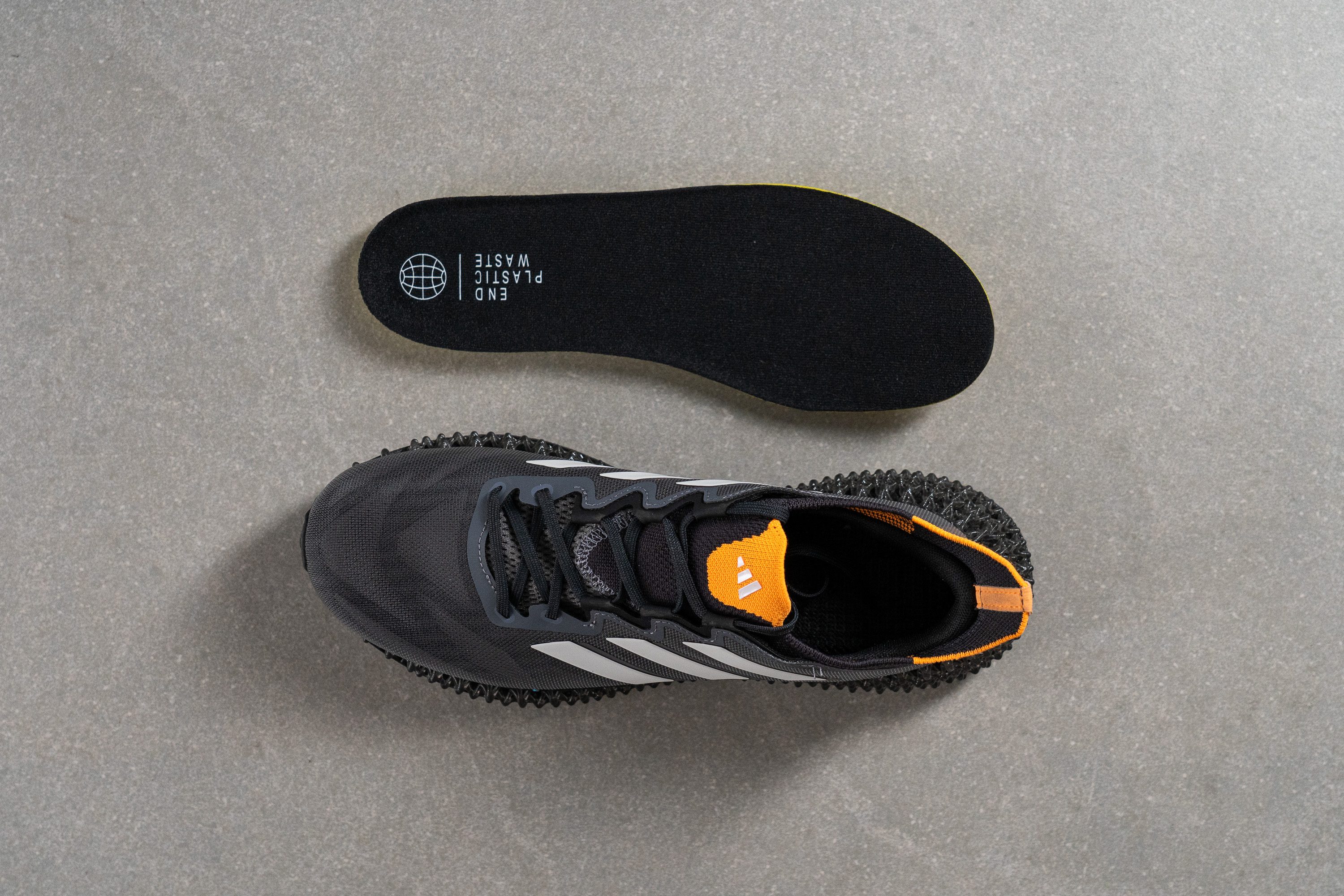
| 4DFWD 3 | Yes |
Midsole softness in cold (%)
To see how the 4DFWD 3 reacts to cold conditions, we placed it in our freezer for twenty minutes and took another durometer of the midsole. With a result 23.5% firmer than at room temperature, the shoe's midsole is slightly more consistent than our current lab average under similar conditions. As such, we don't expect the shoe's cushioining to be too affected by frigid weather.
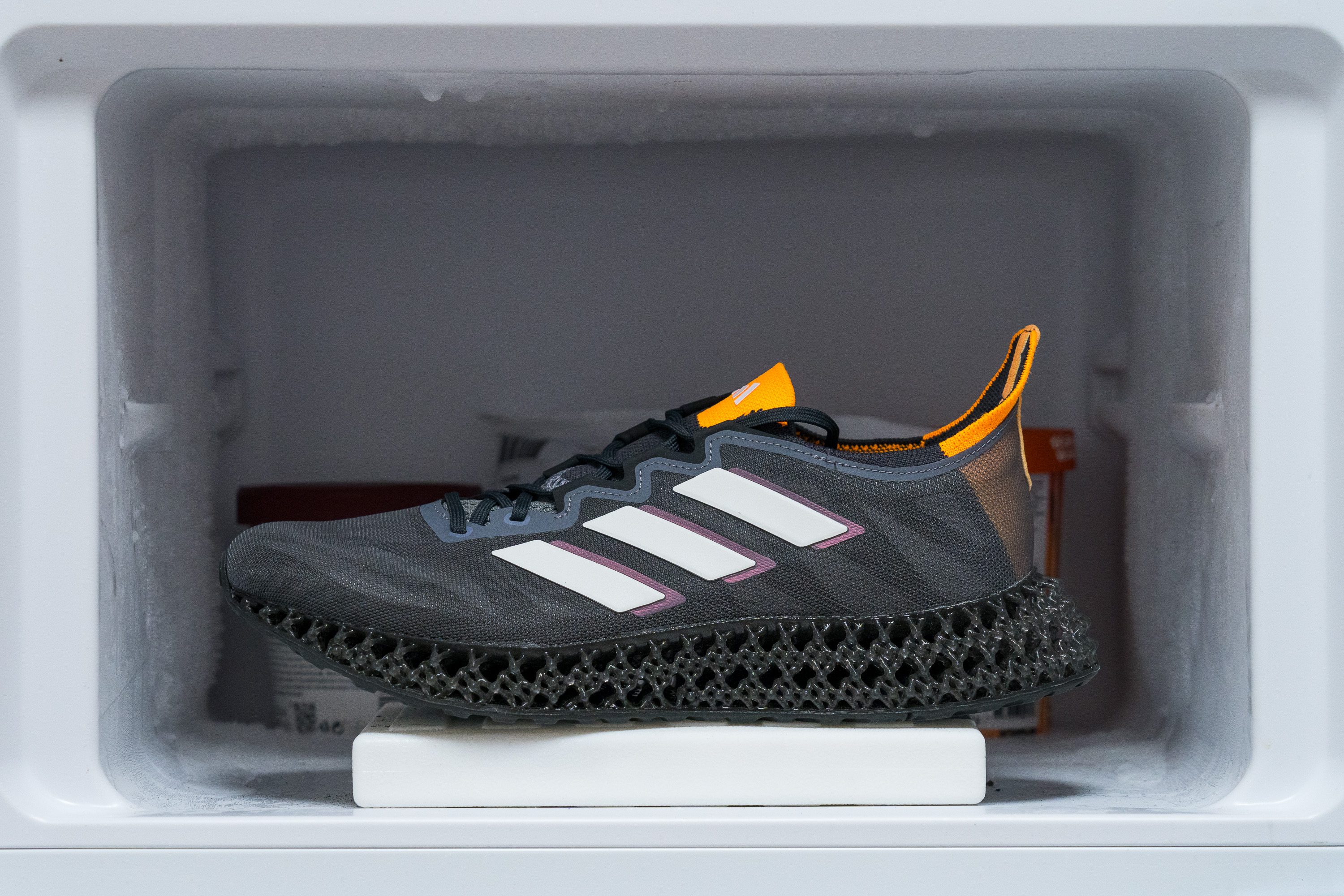
| 4DFWD 3 | 24% |
| Average | 24% |
Reflective elements
The iconic Adidas three-stripe emblazoned on the sides of the shoe are reflective and lend the 4DFWD 3 a decent amount of nighttime visibility.
| 4DFWD 3 | Yes |
Tongue padding
The tongue area of the shoe is only 2 mm thick according to our caliper measurements.
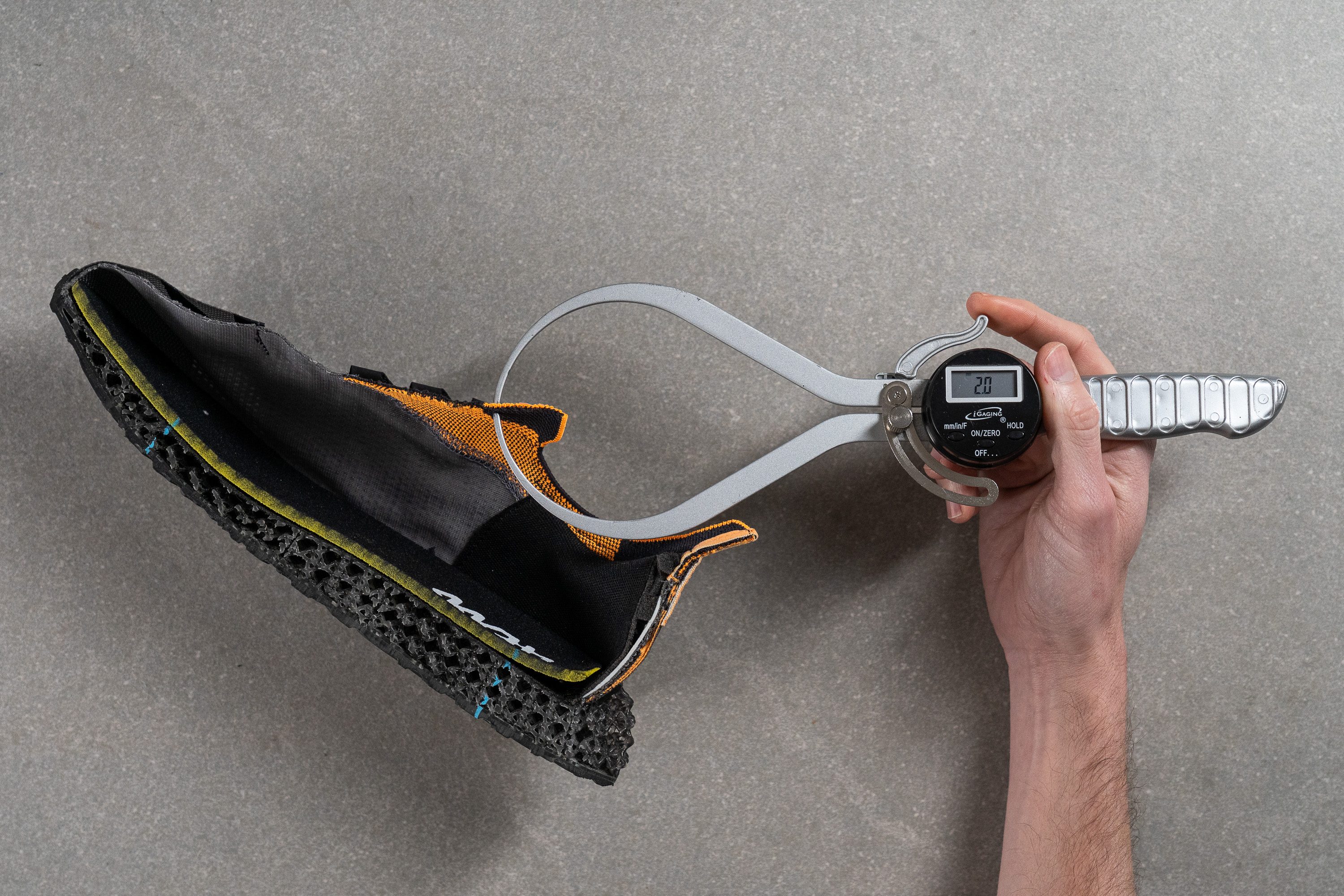
This doesn't give us much of a buffer between the laces and our foot. However, despite their feeling quite apparent across our instep, the laces themselves are quite soft which means that it wasn't that uncomfortable during our test runs.
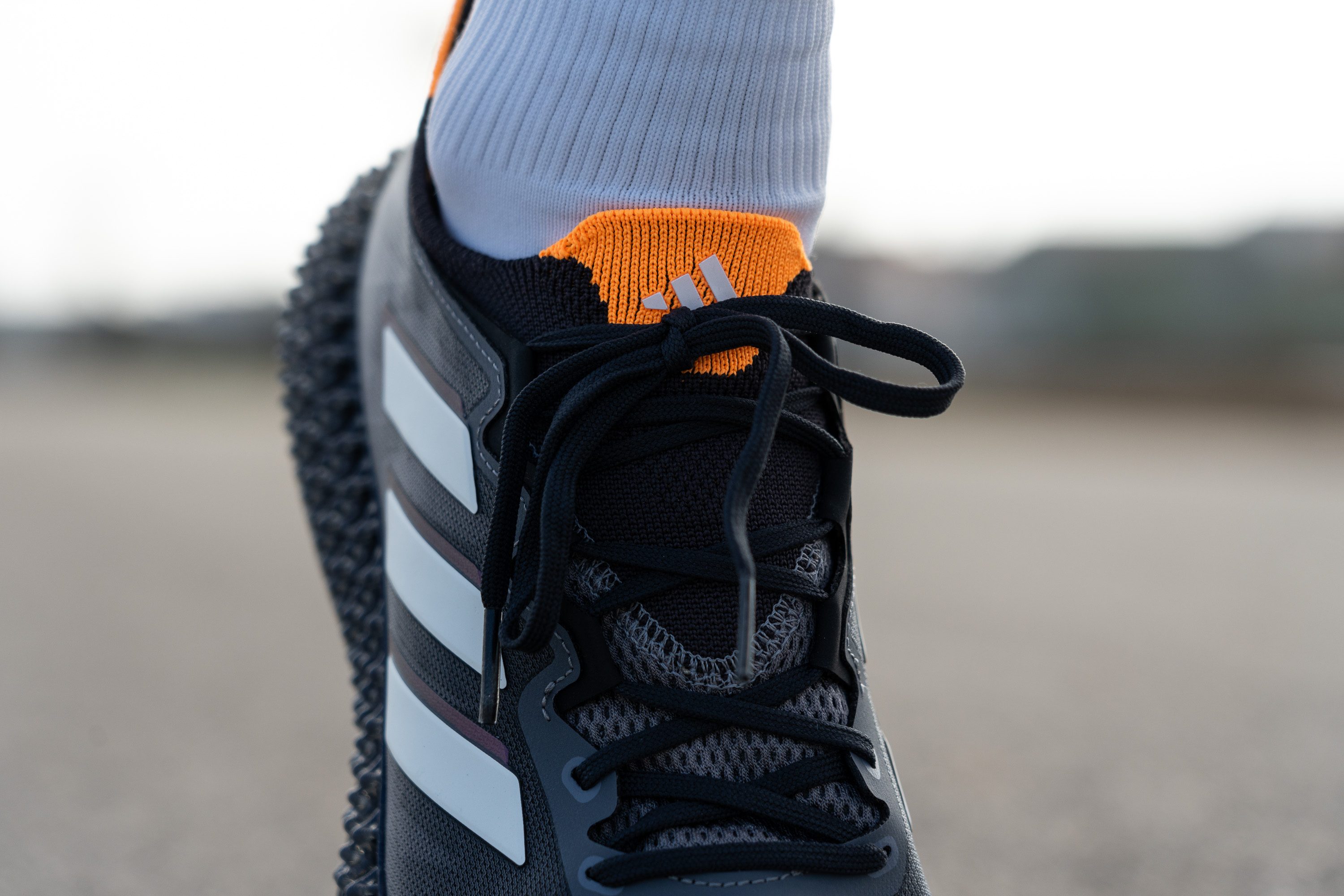
| 4DFWD 3 | 2.0 mm |
| Average | 5.7 mm |
Tongue: gusset type
Rather than a gusset, the 4DFWD 3's tongue is integrated into the upper for a snug, sock-like fit. This makes the shoe feel more like it's wrapped around our foot rather than our foot merely sitting in it, giving us more of an extension of our body vibe.
| 4DFWD 3 | Sock like |
Heel tab
The 4DFWD 3's heel flares upwards to form a nice little pull-tab that looks quite cool aesthetically.
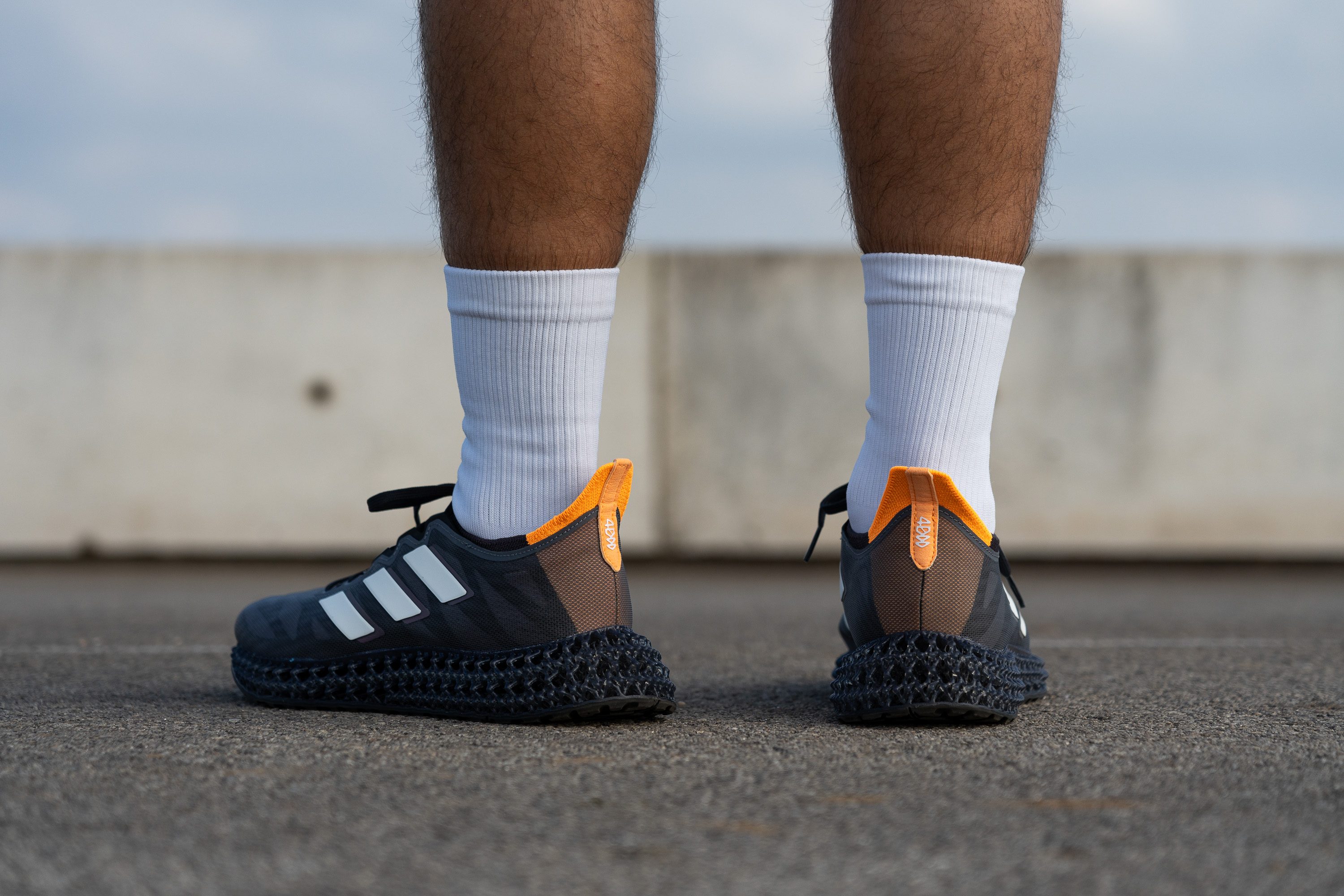
It's also quite helpful as sock-like shoes can be quite difficult to slide into, though the 4DFWD 3 isn't as tight a squeeze as some others we've tested in the past.
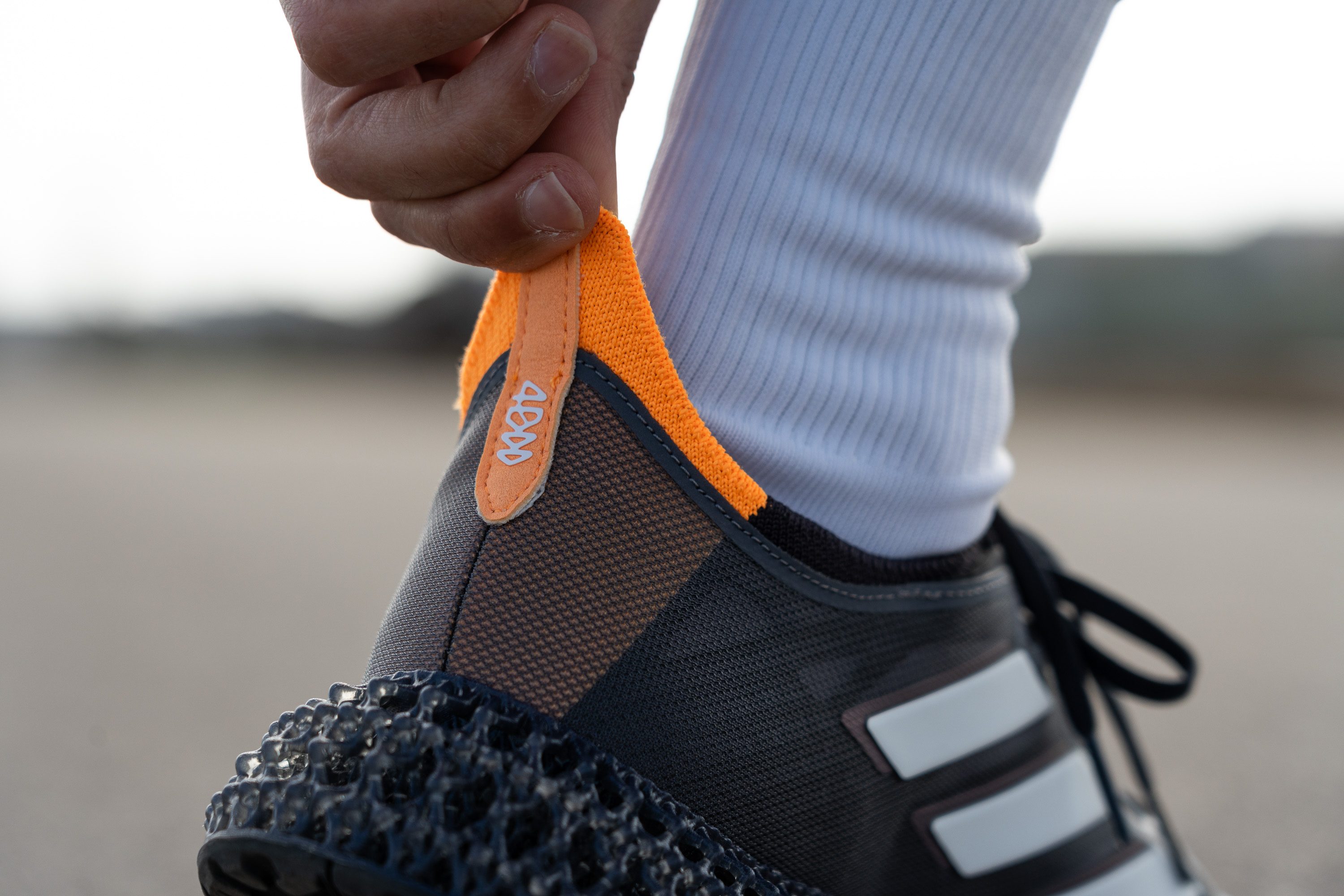
| 4DFWD 3 | Pull tab |

